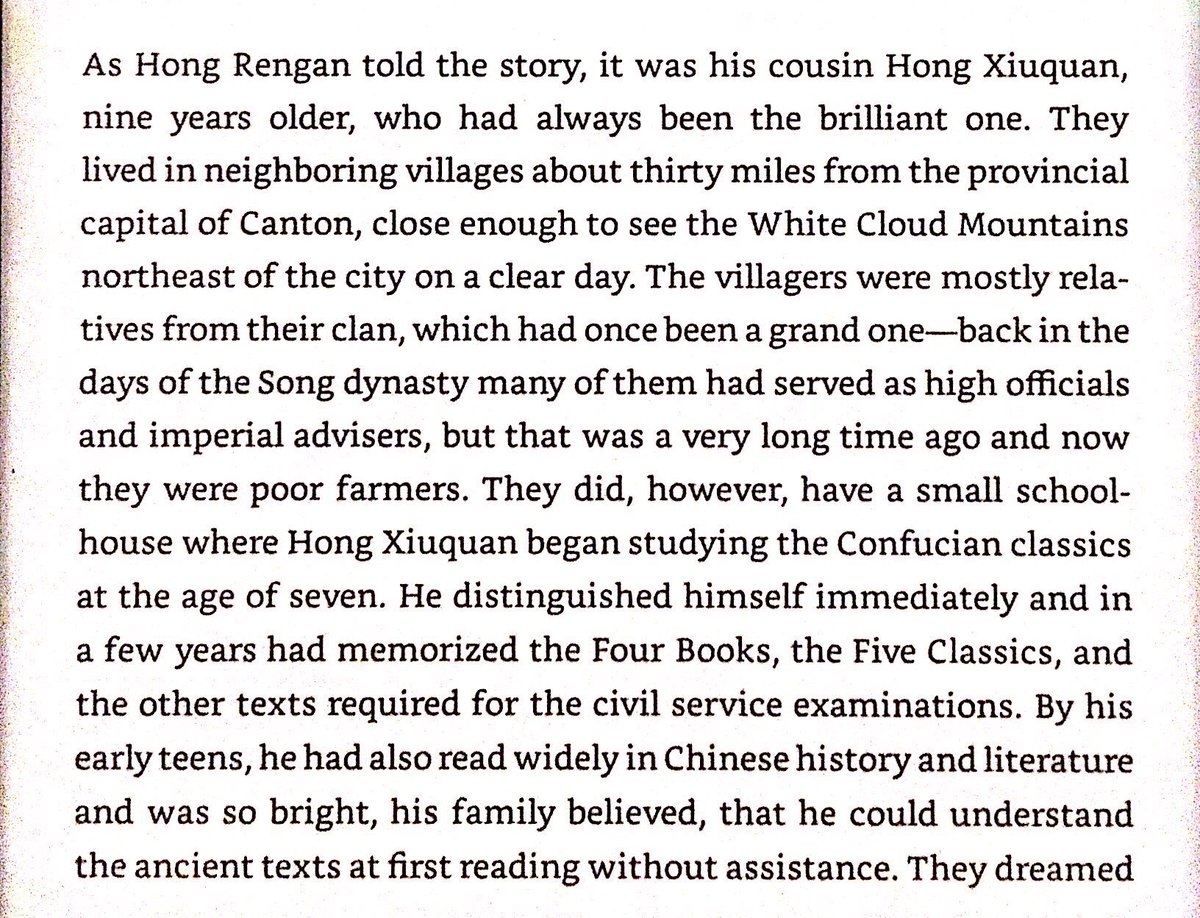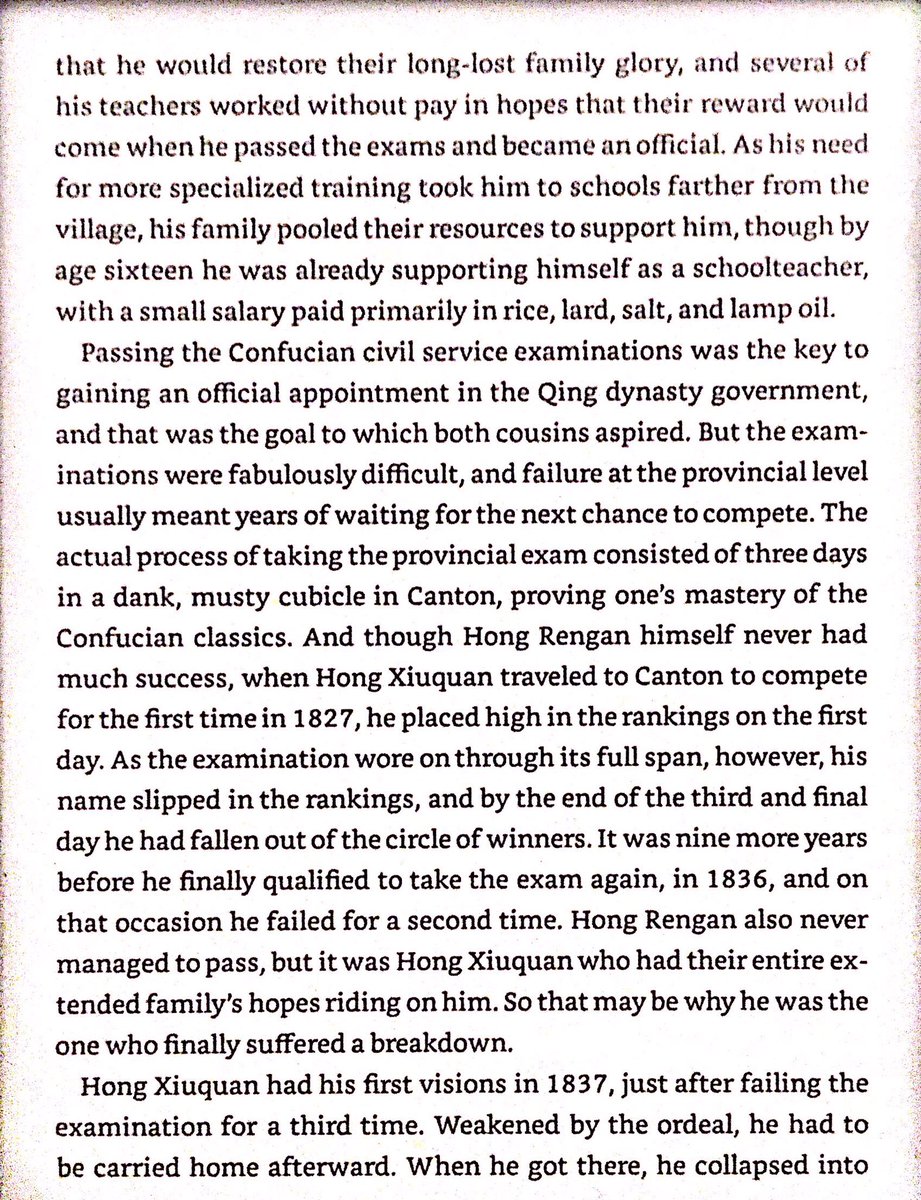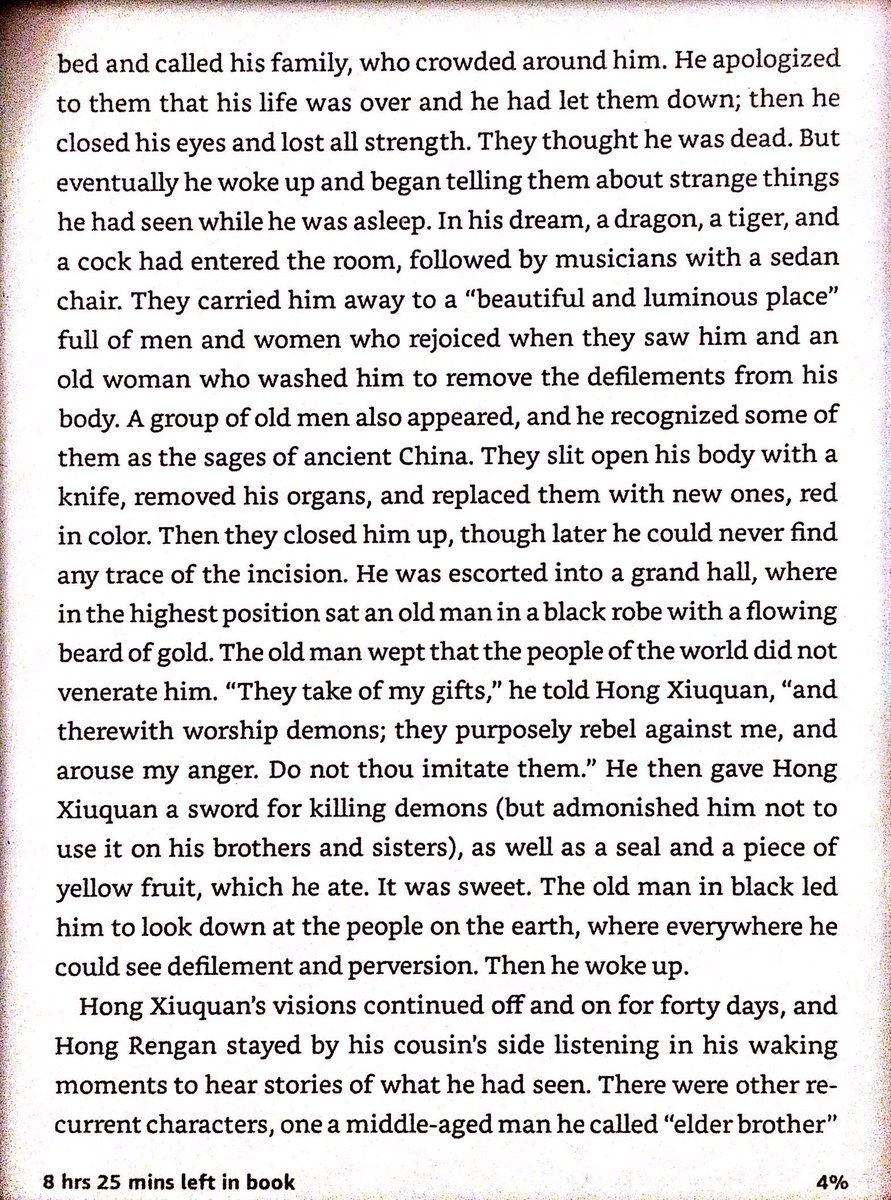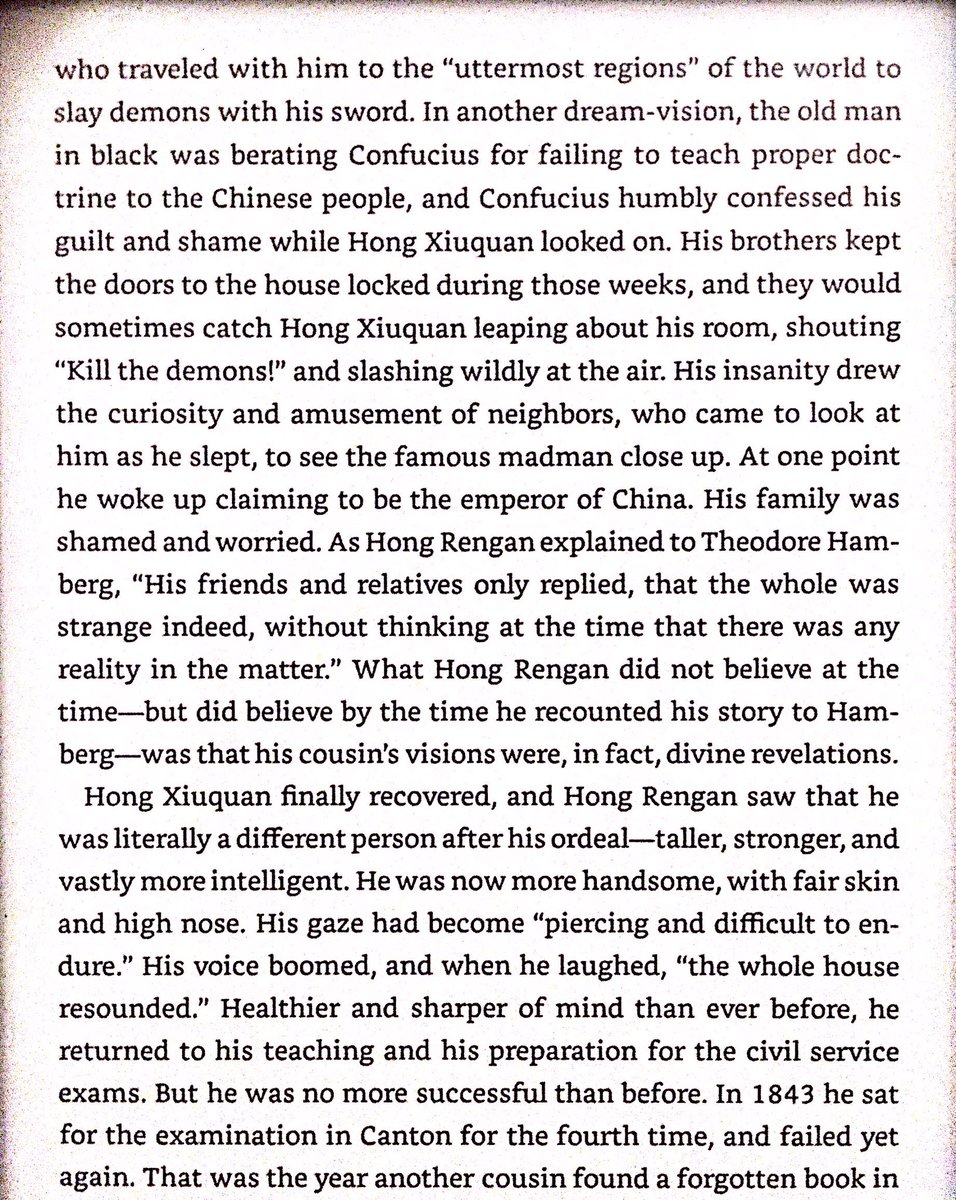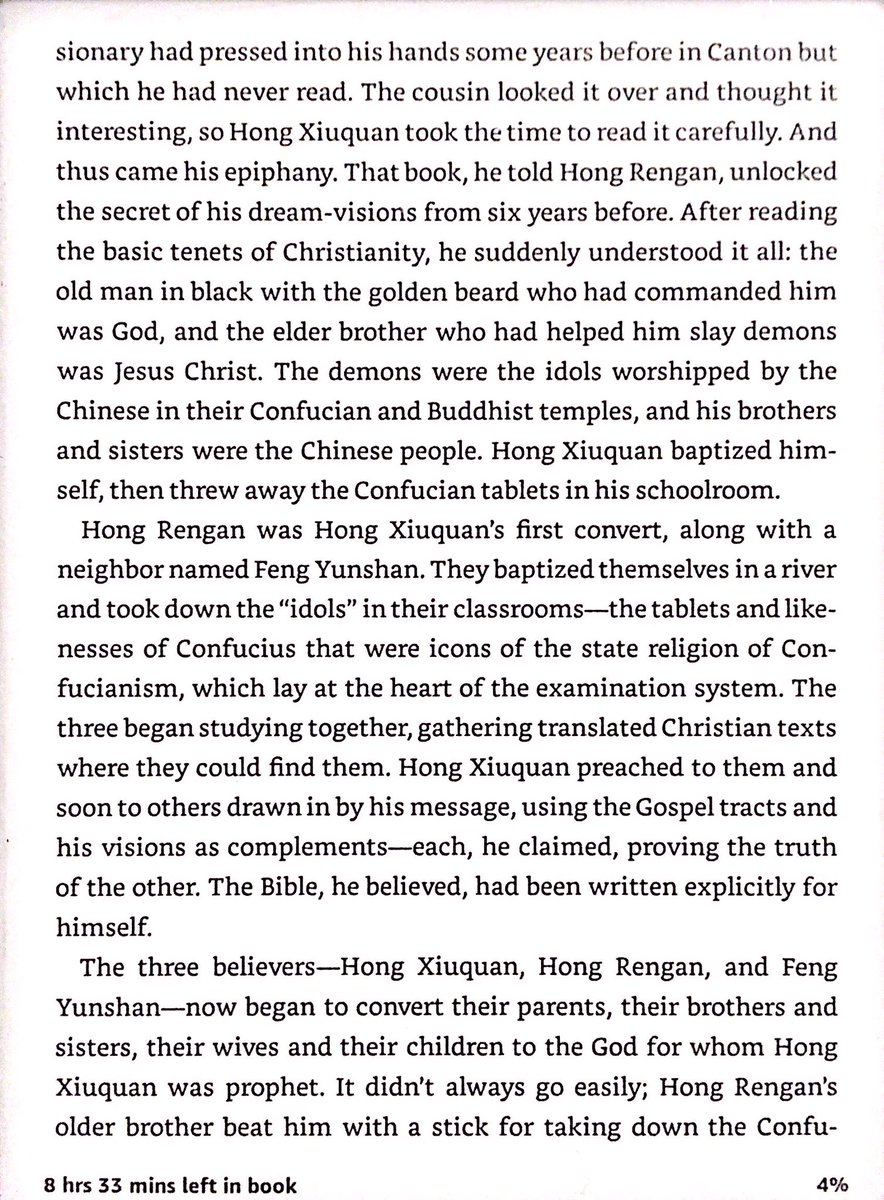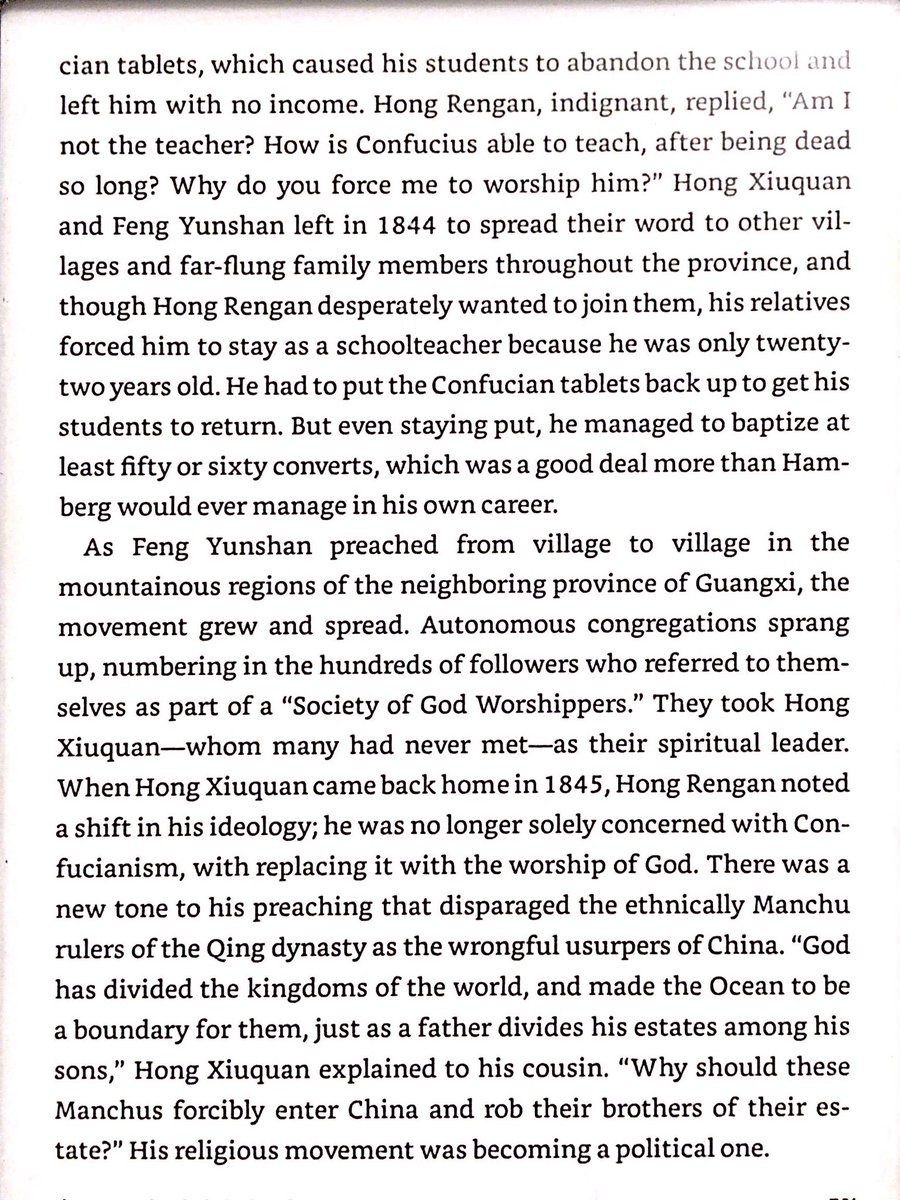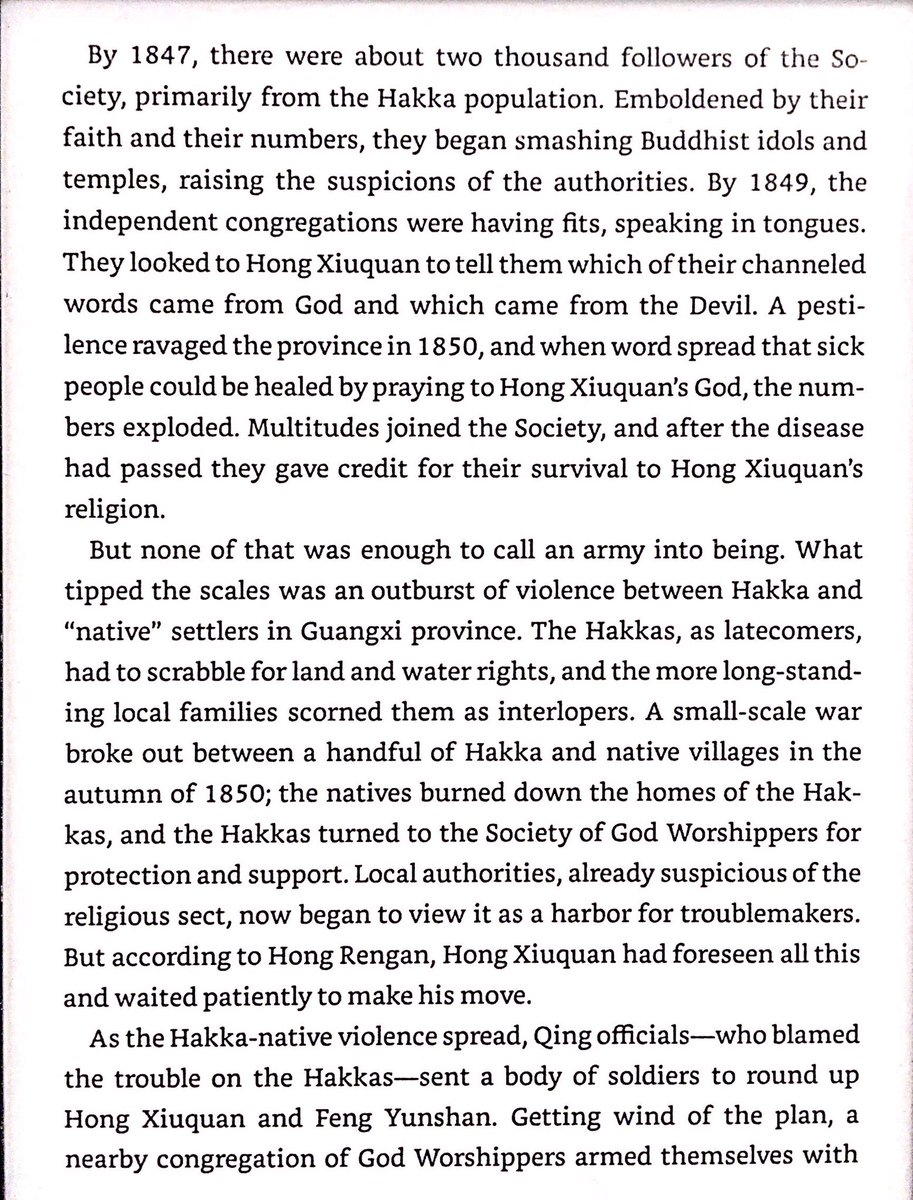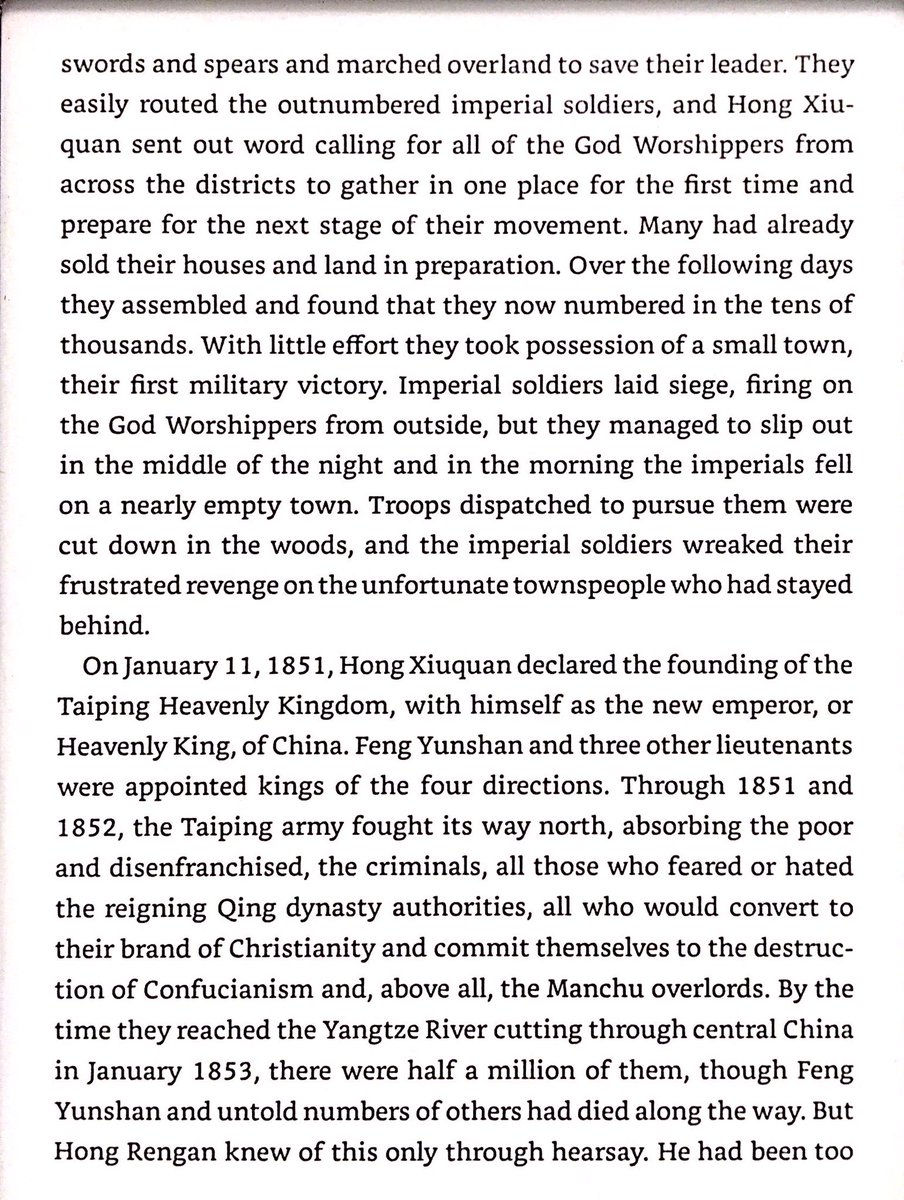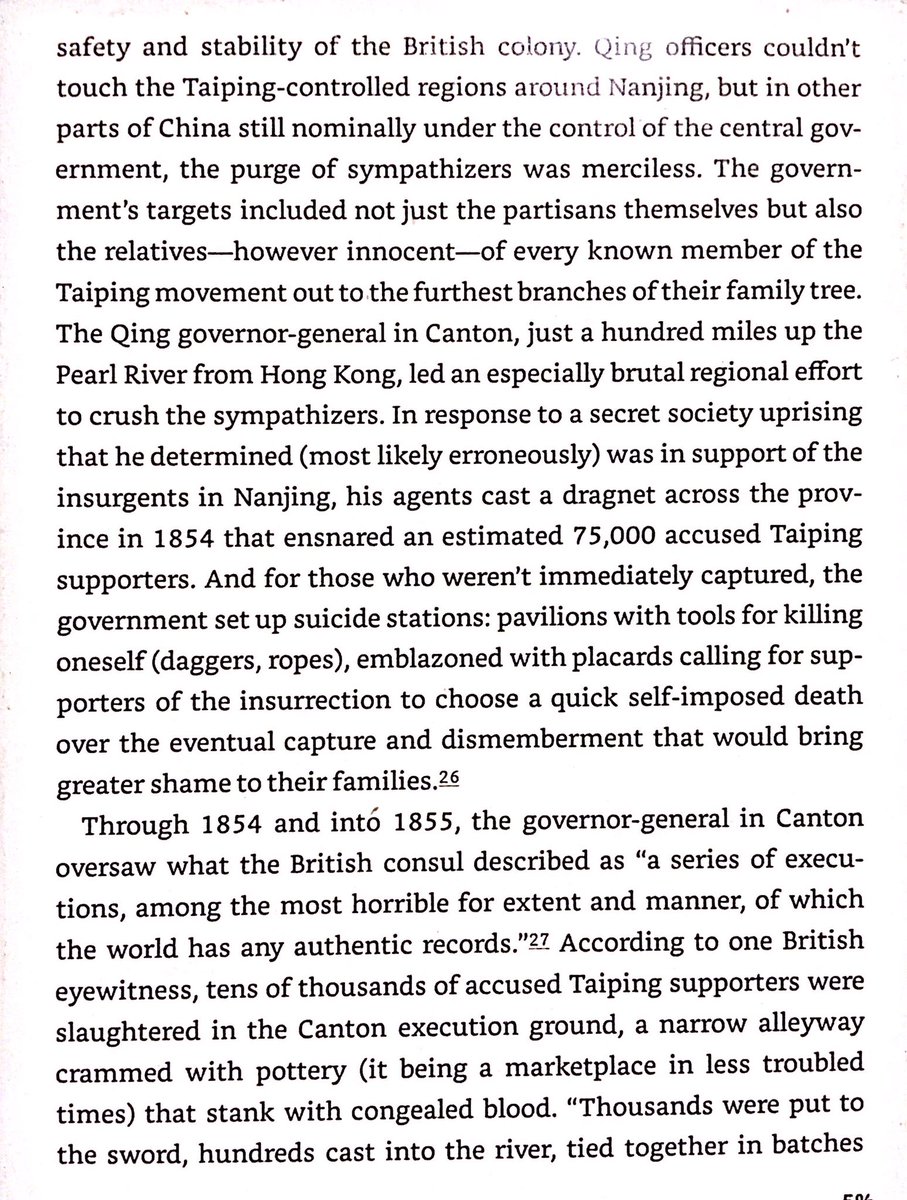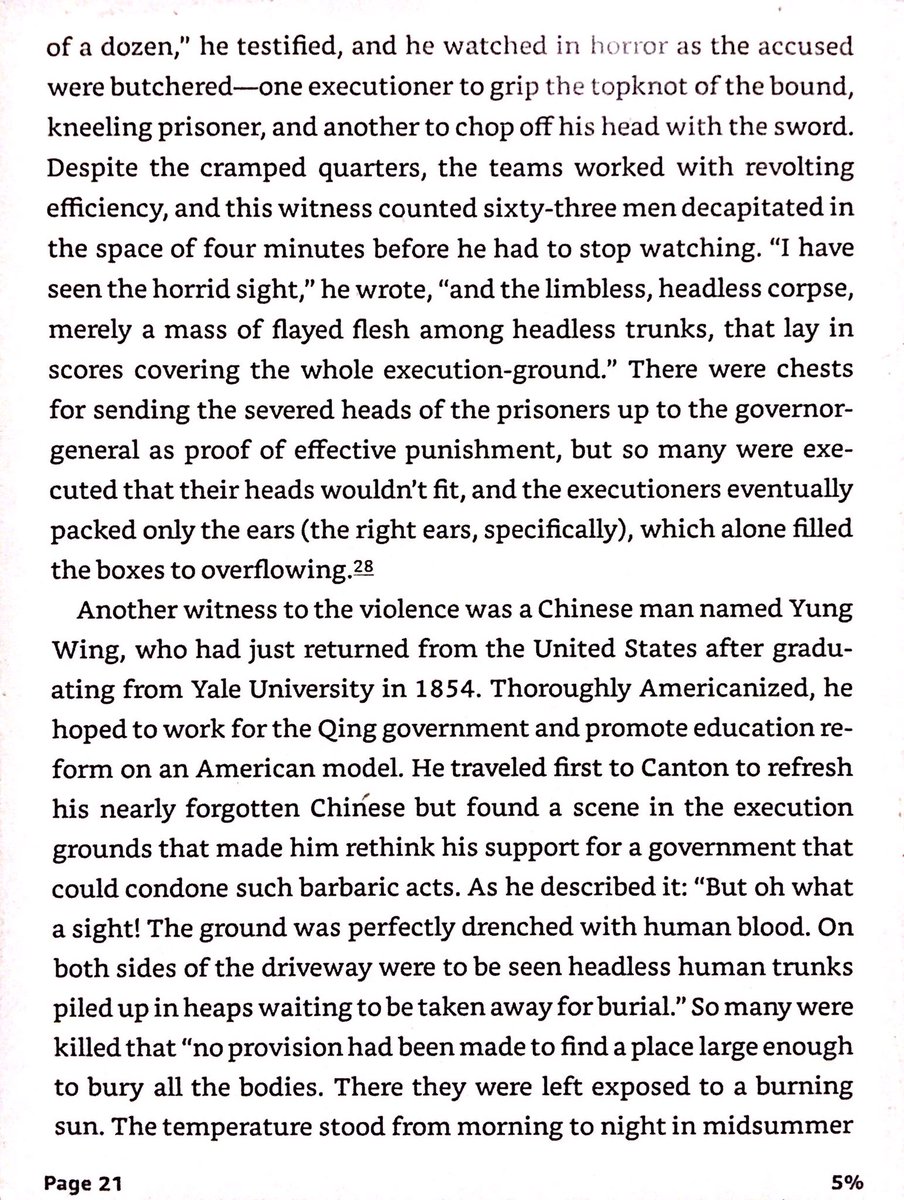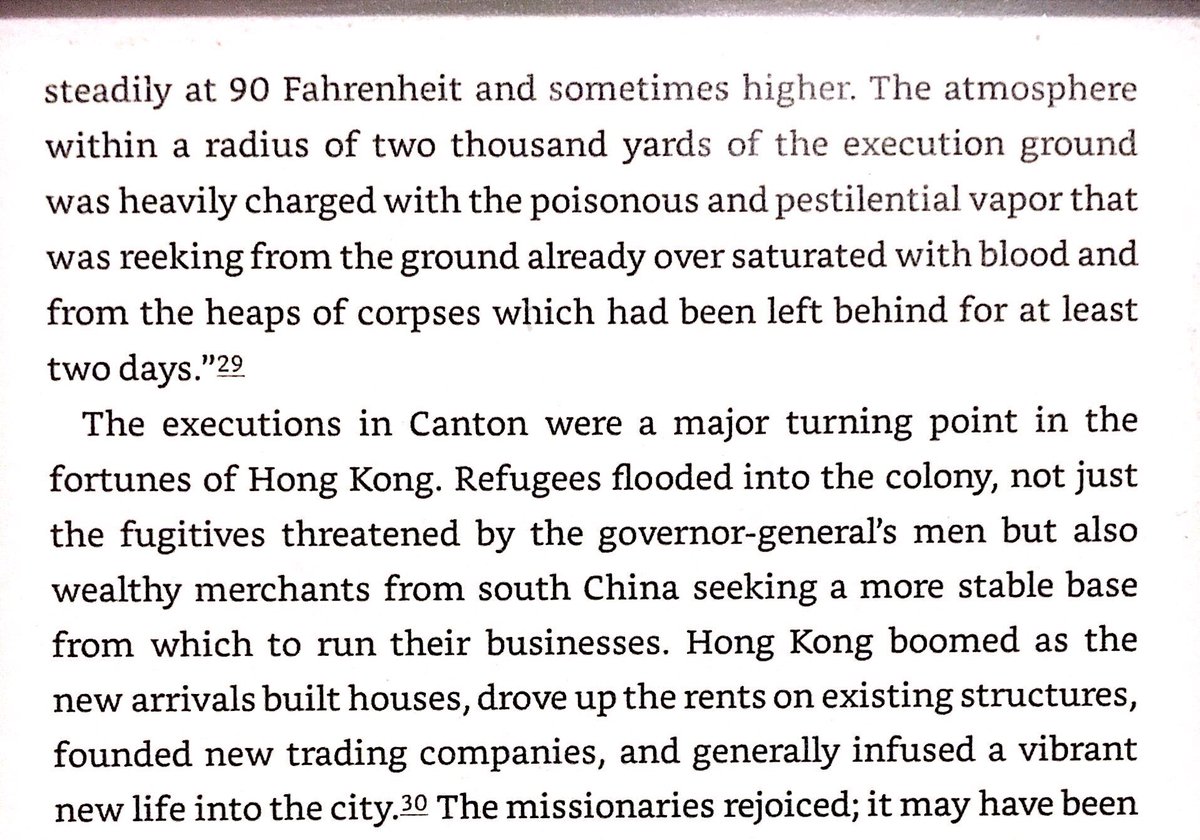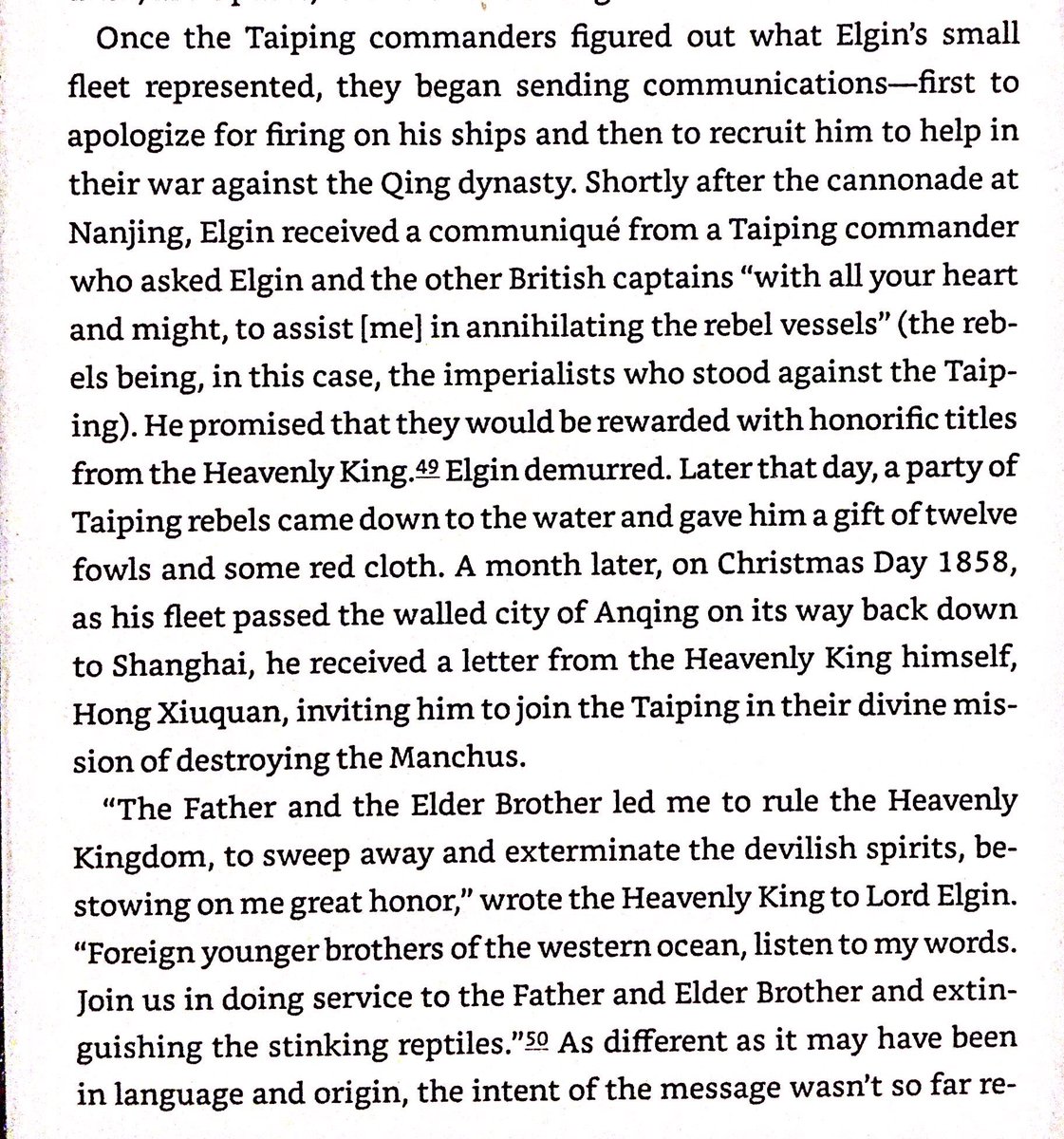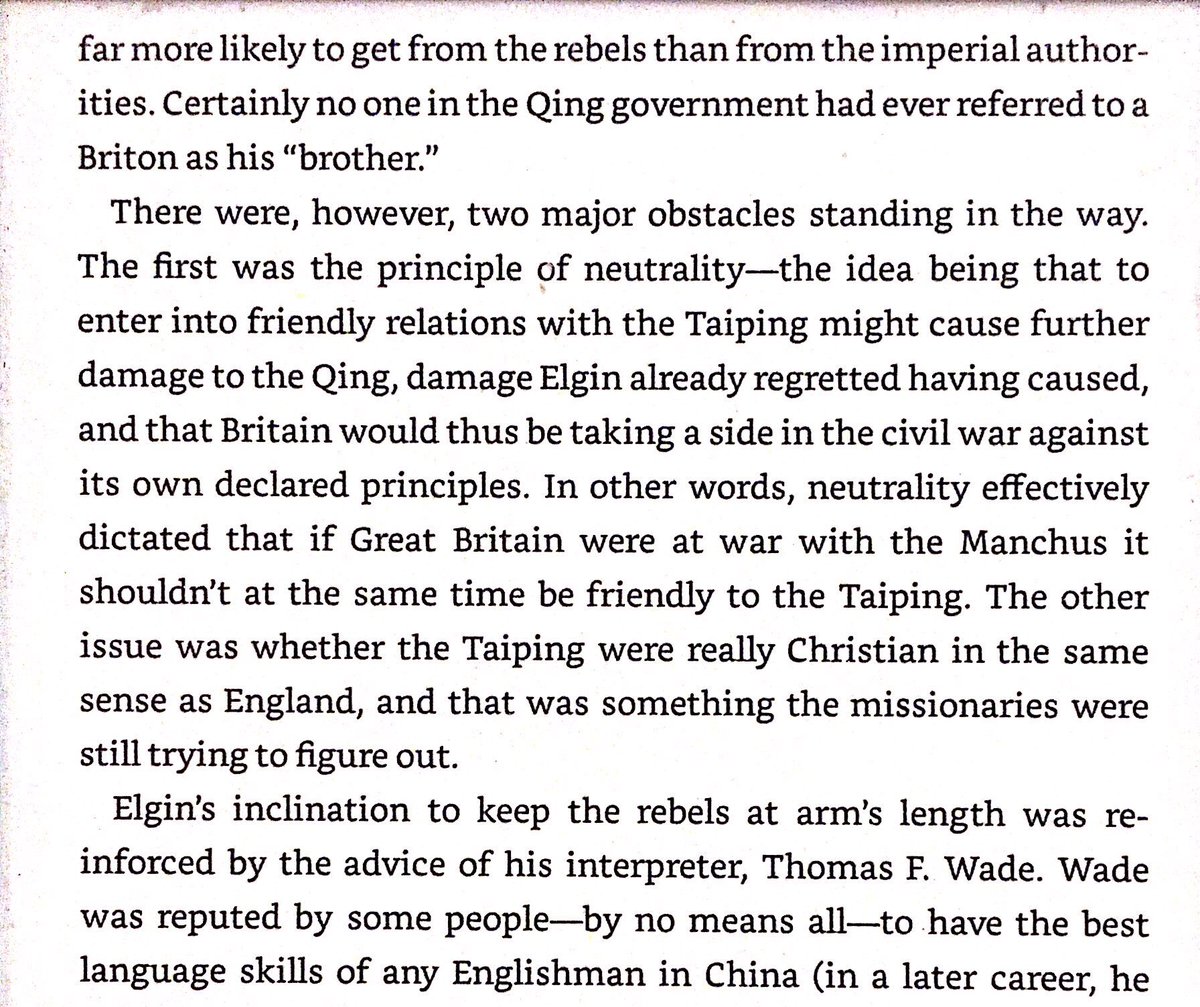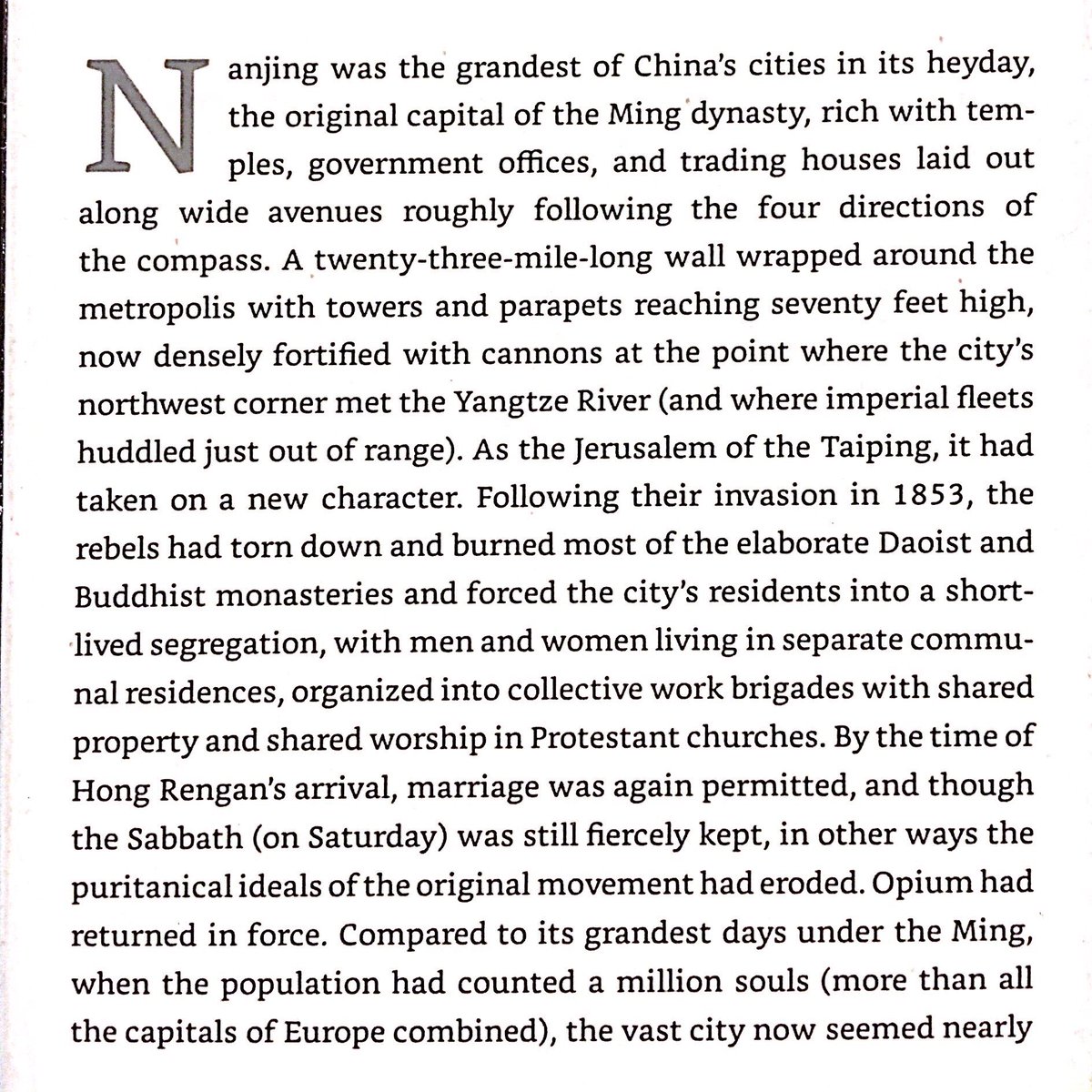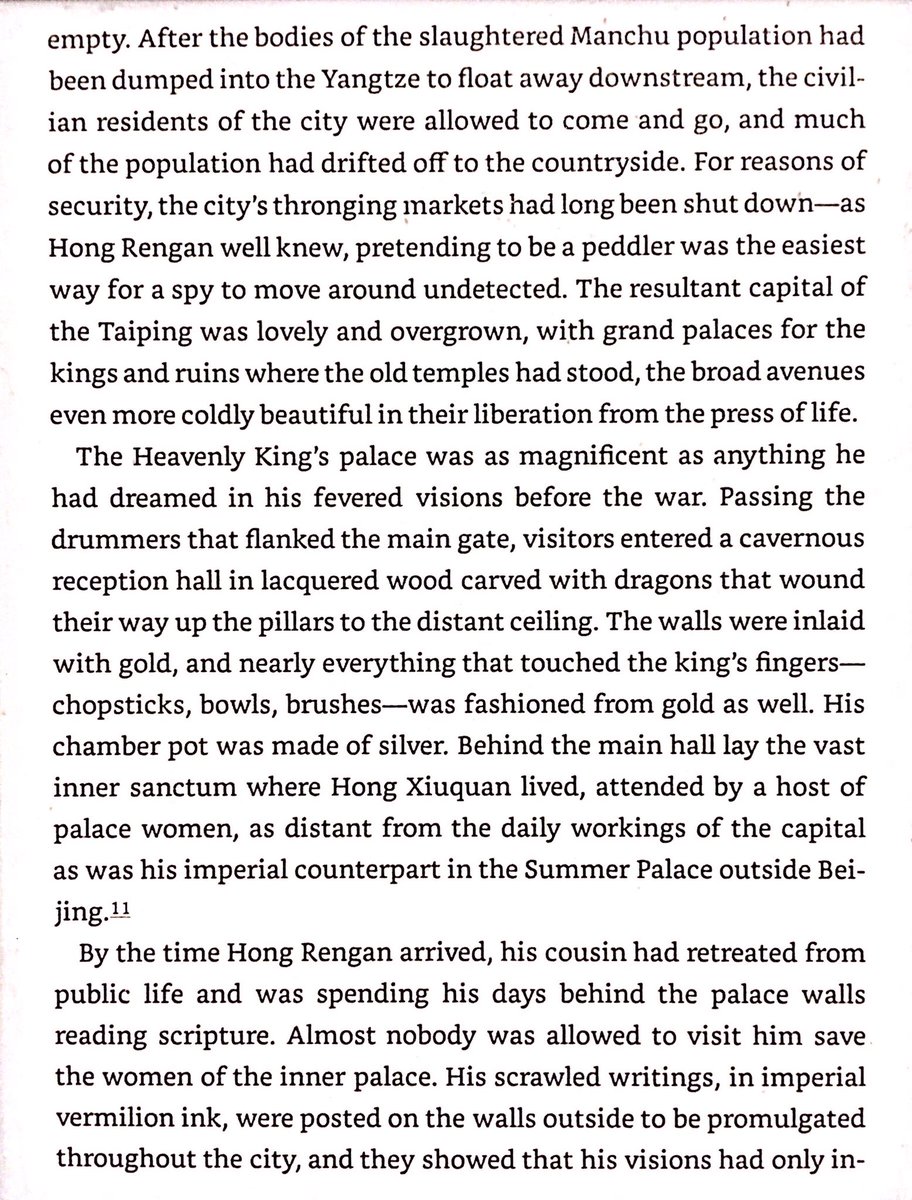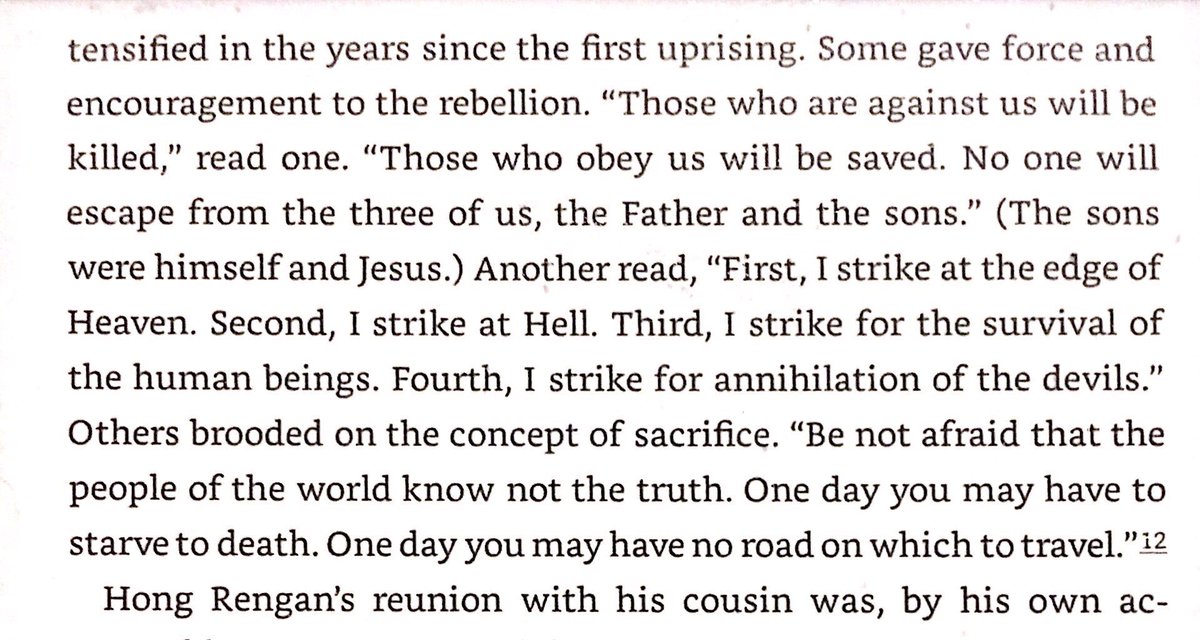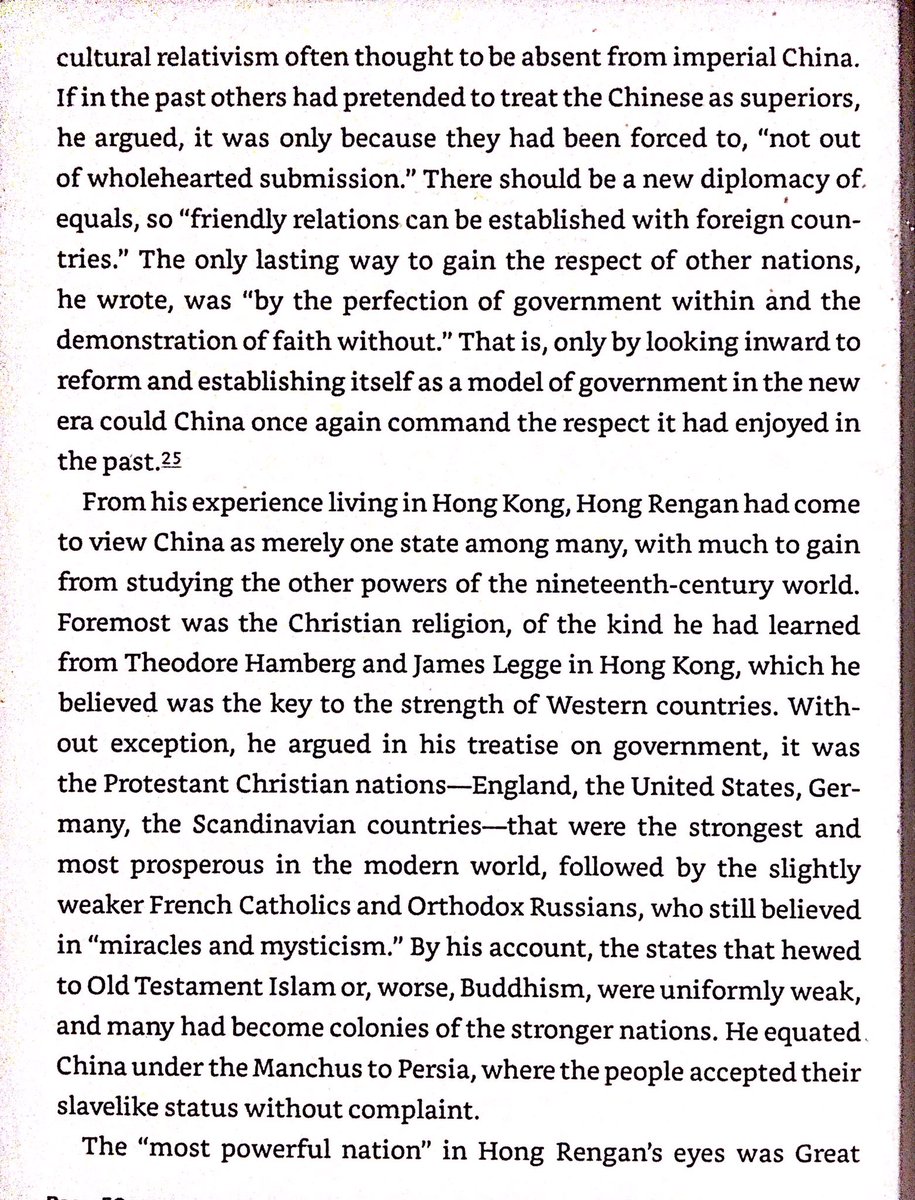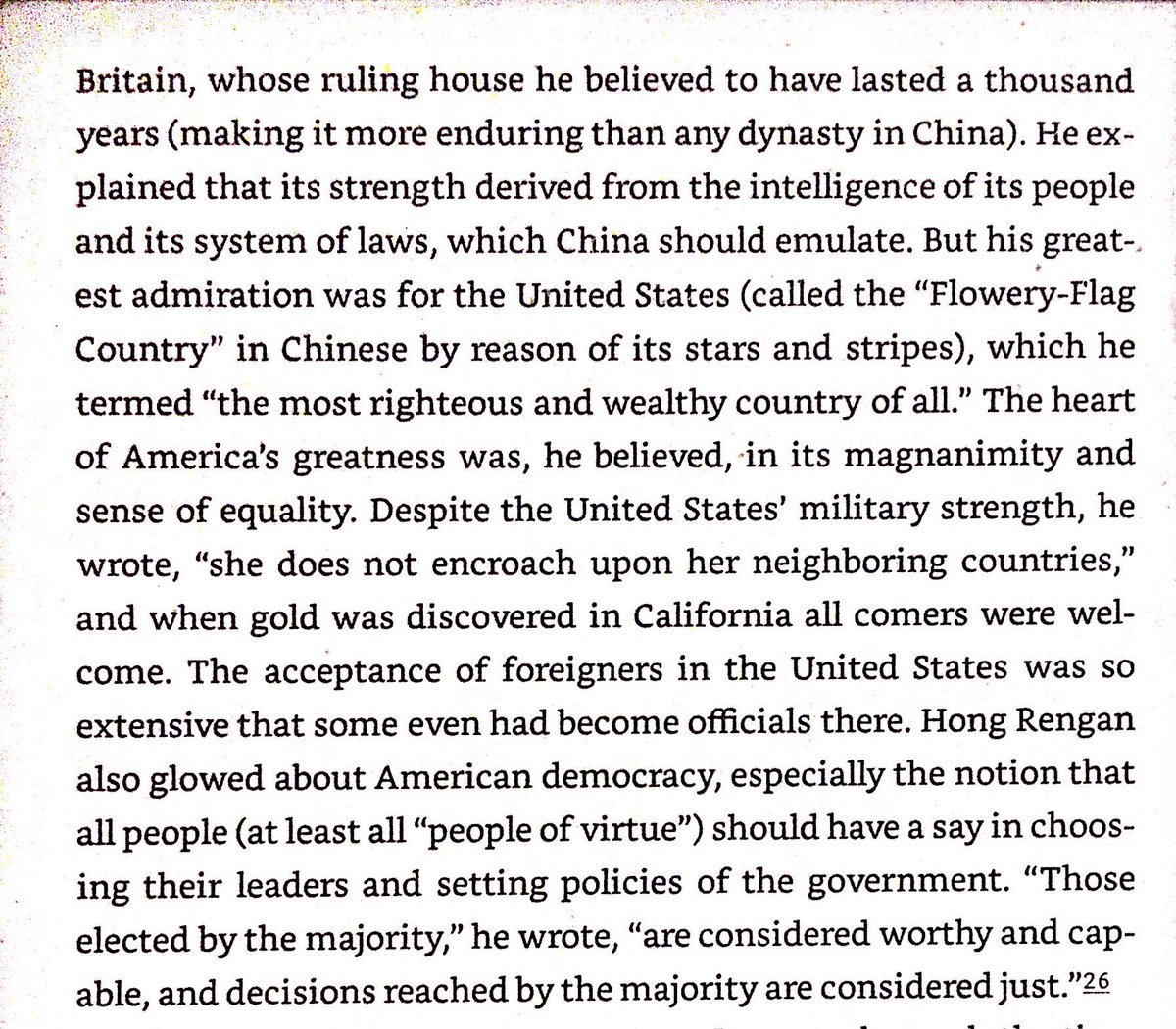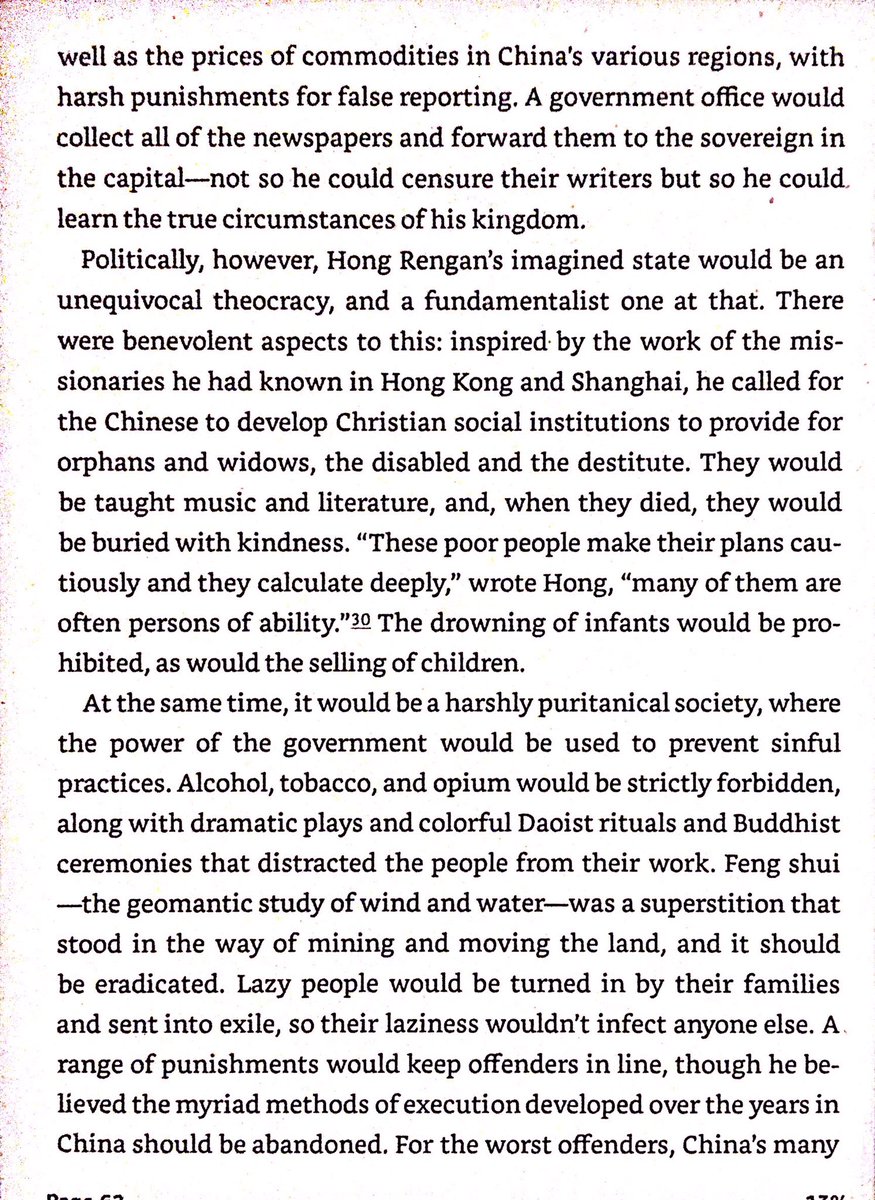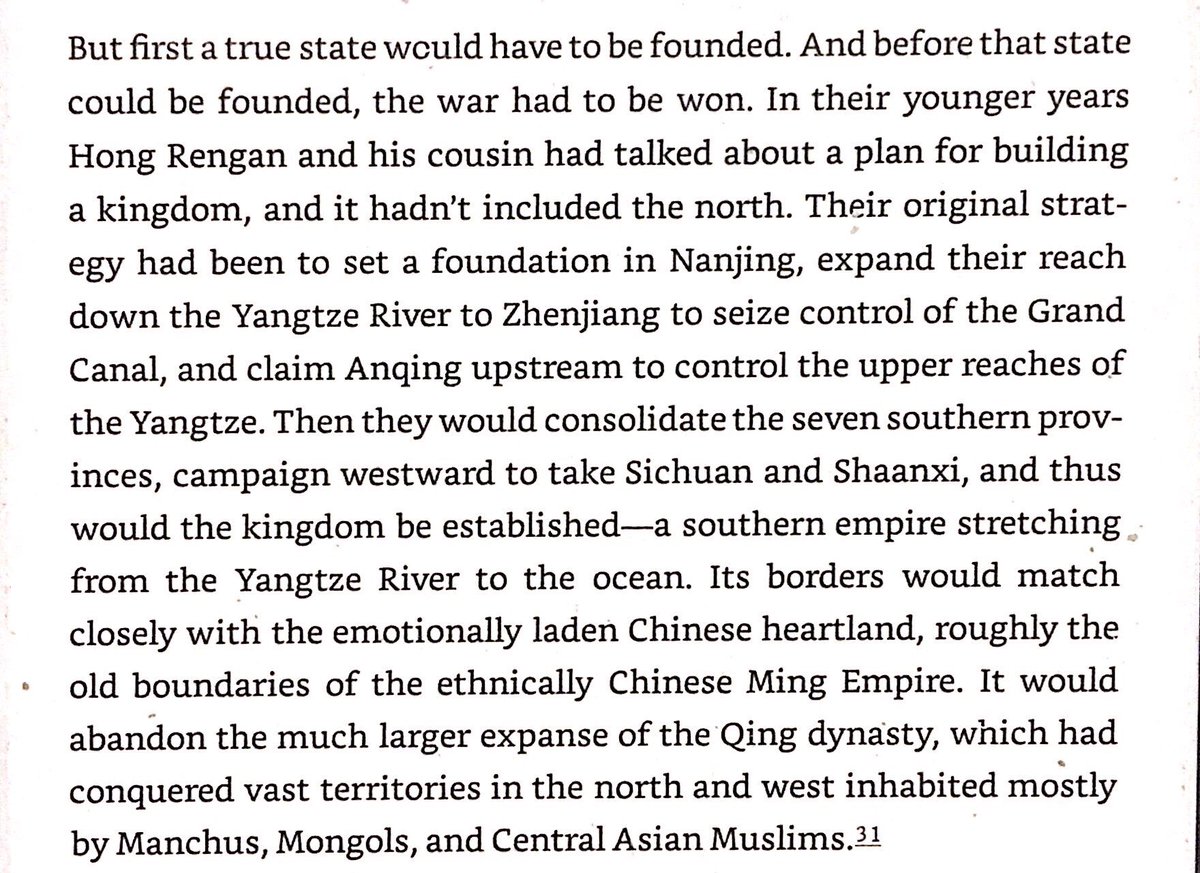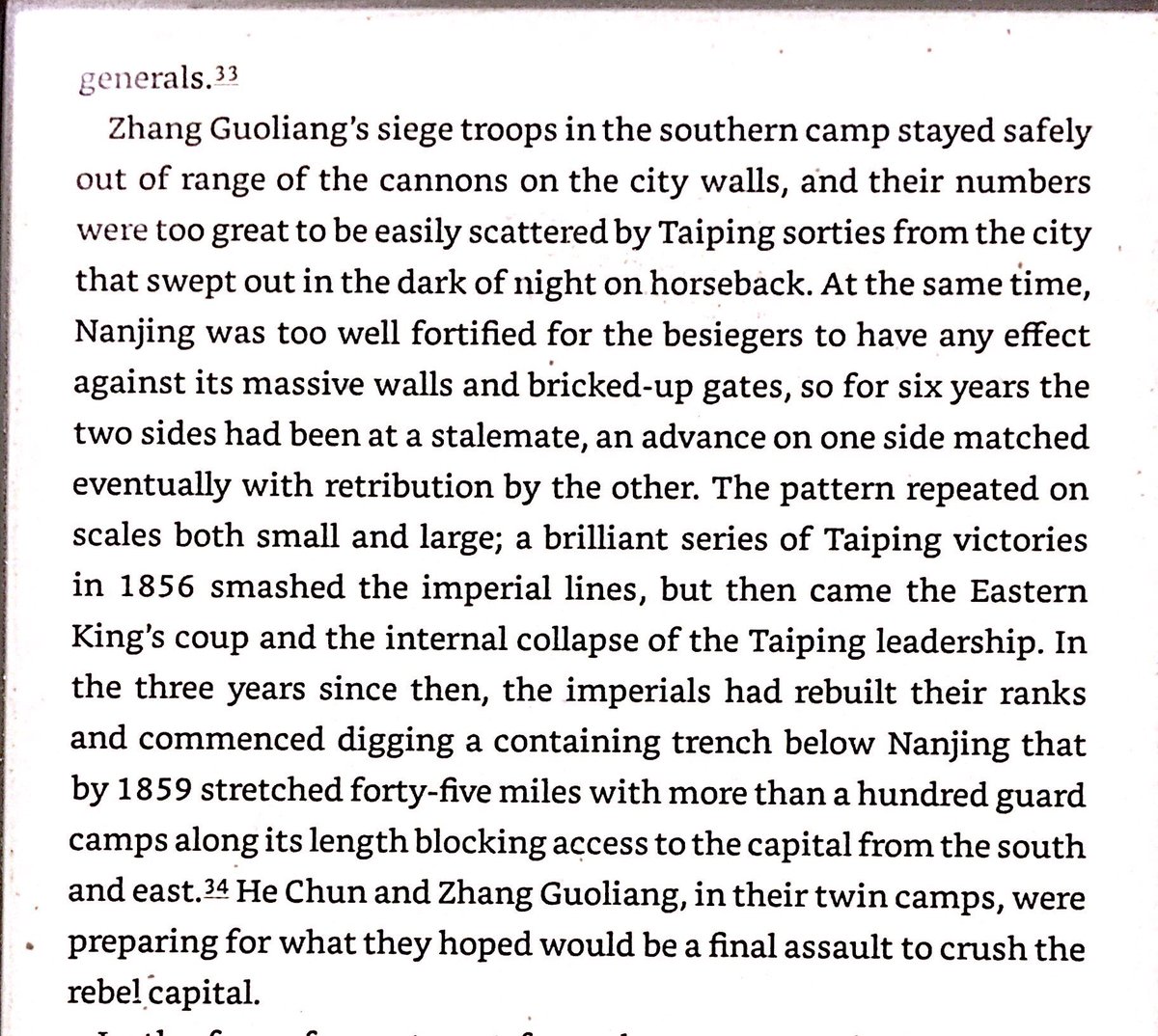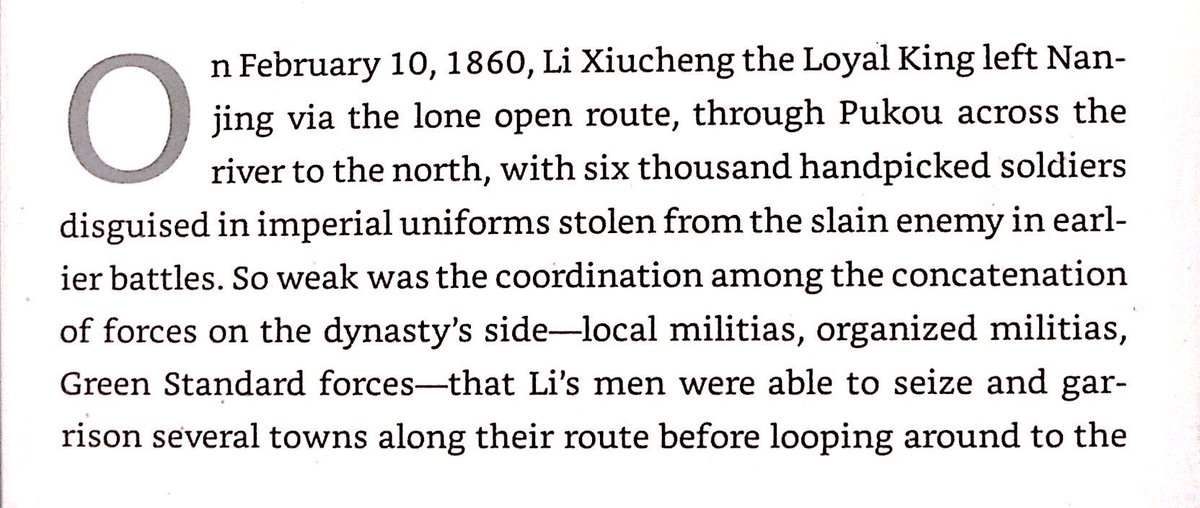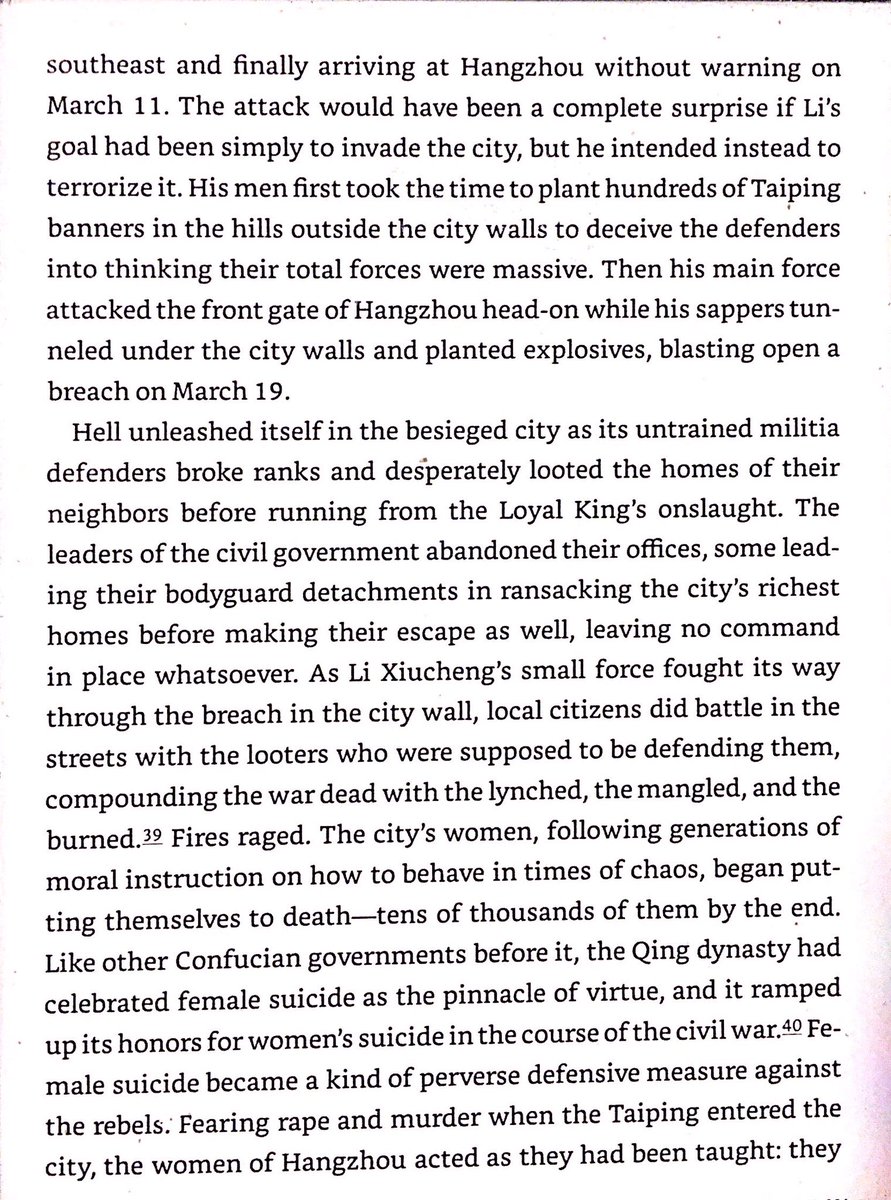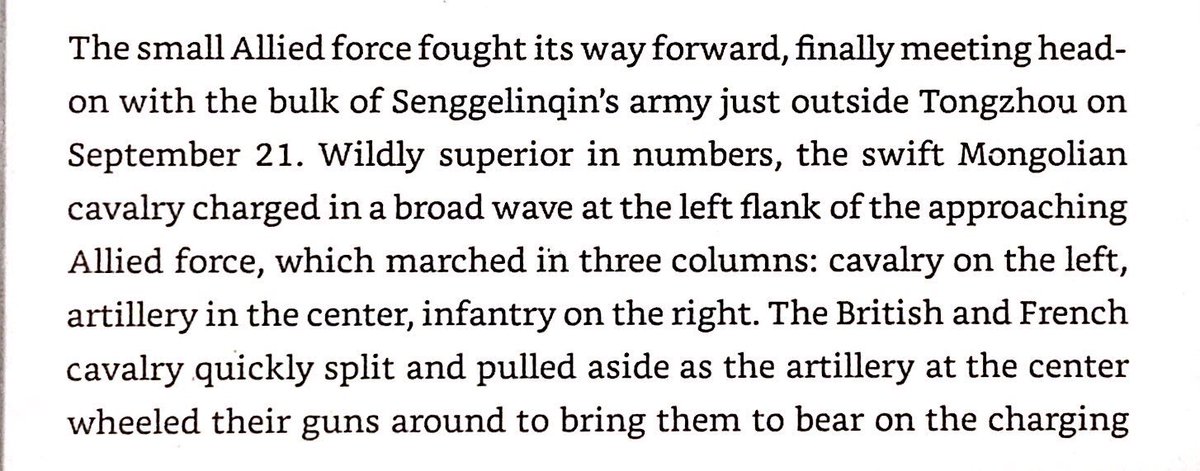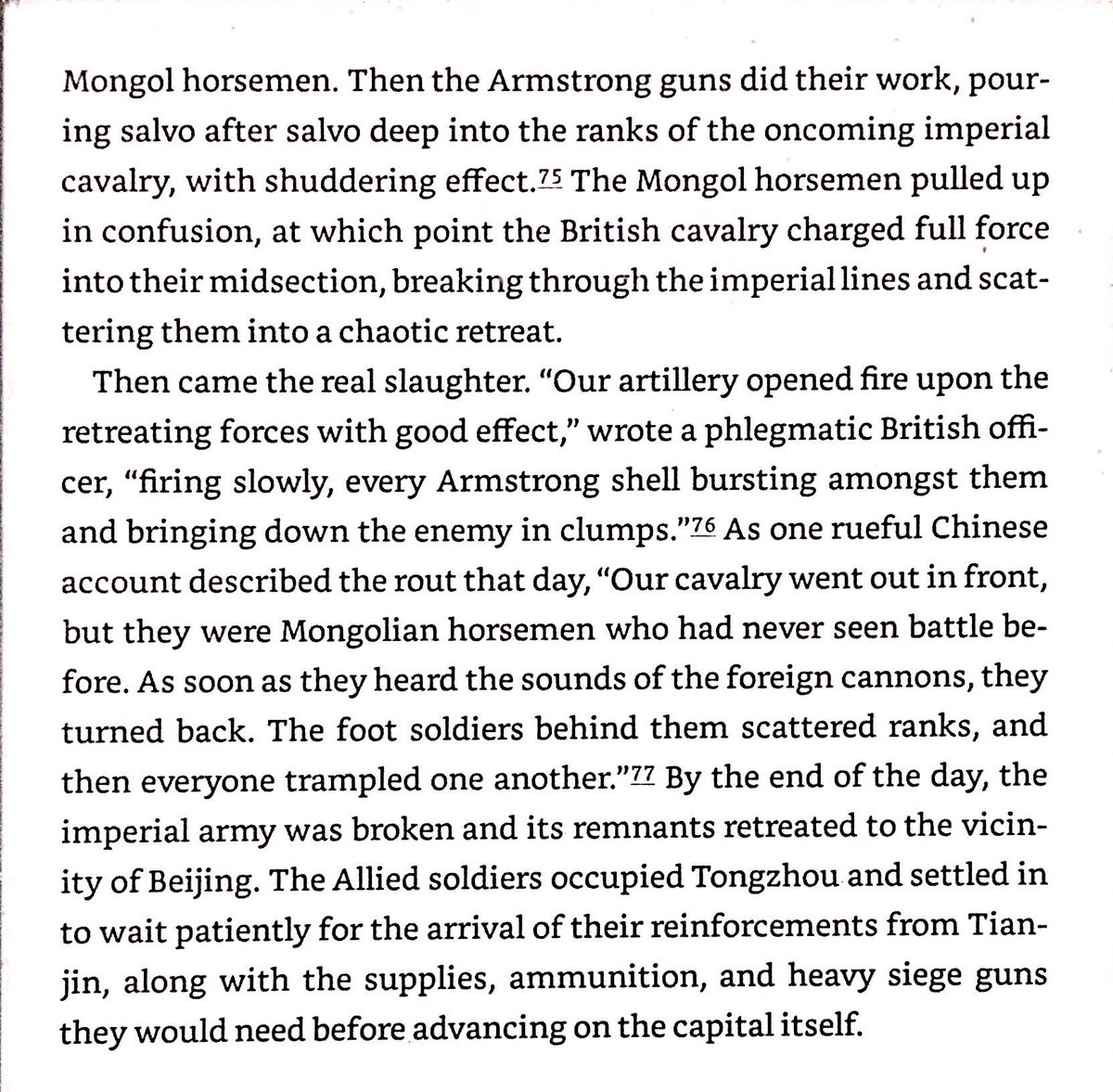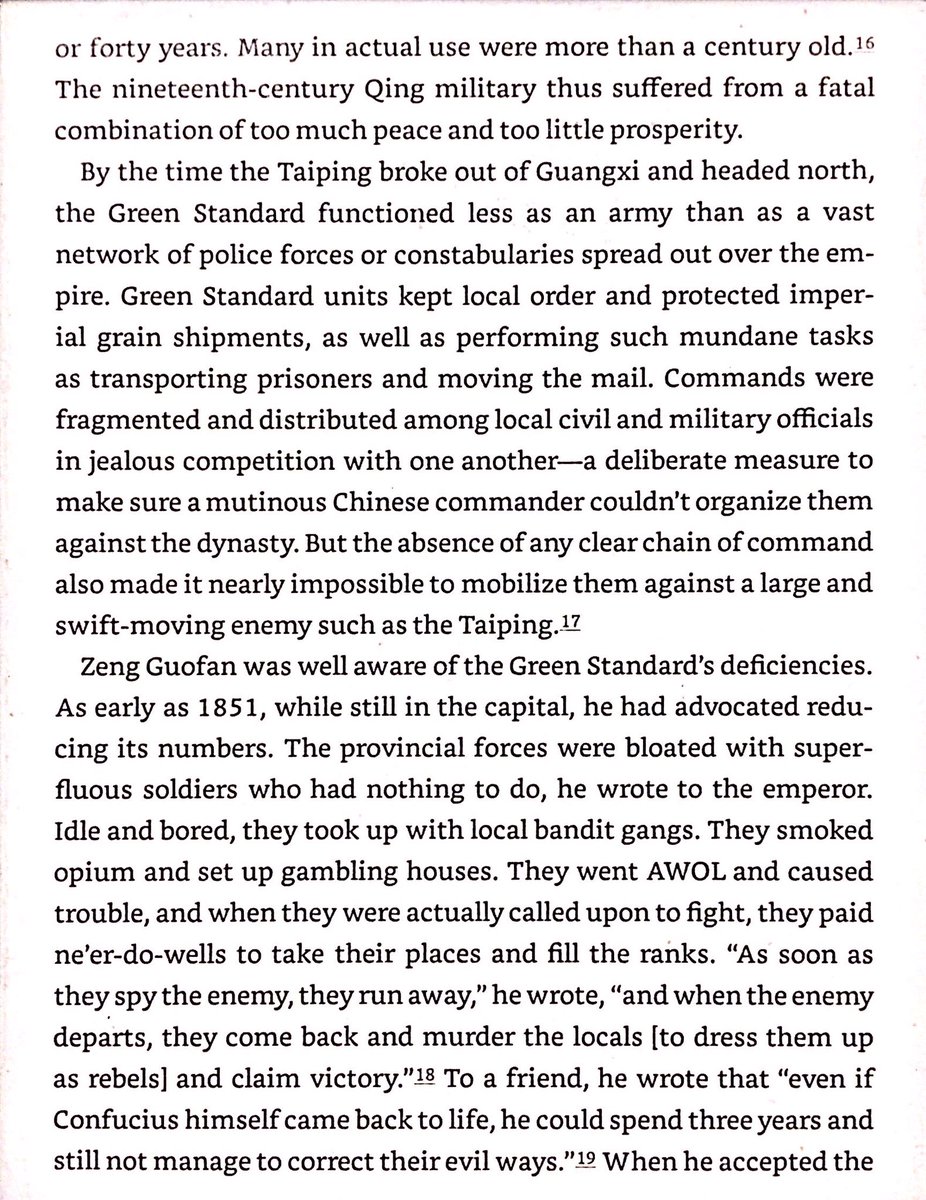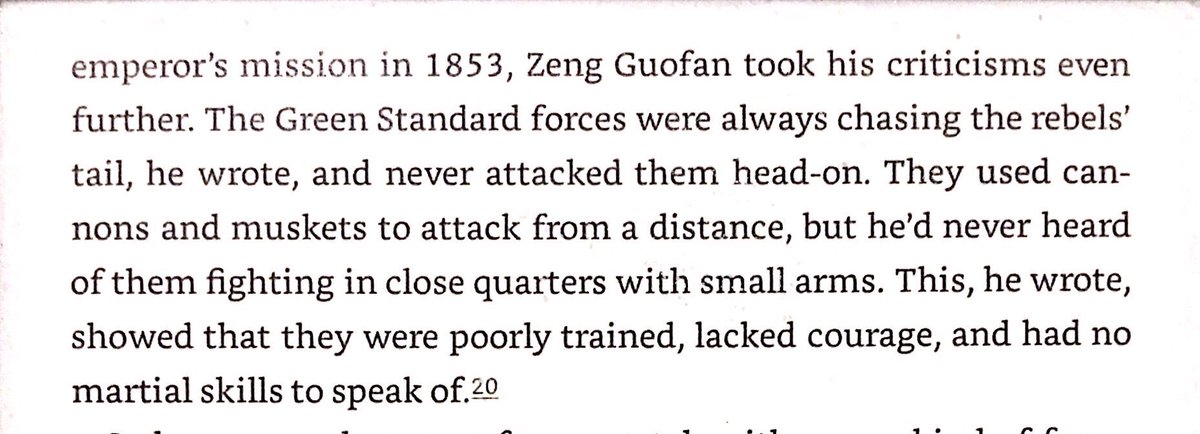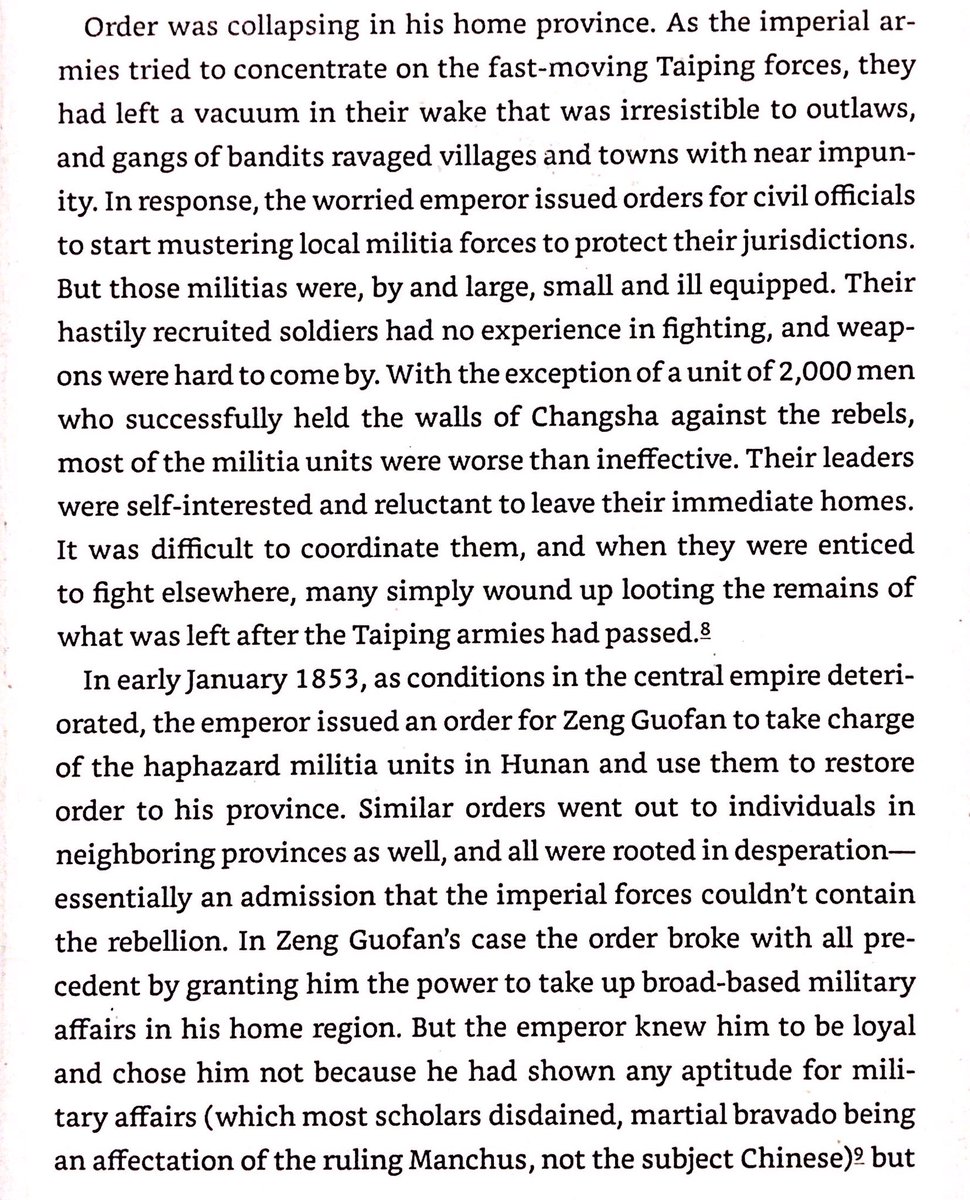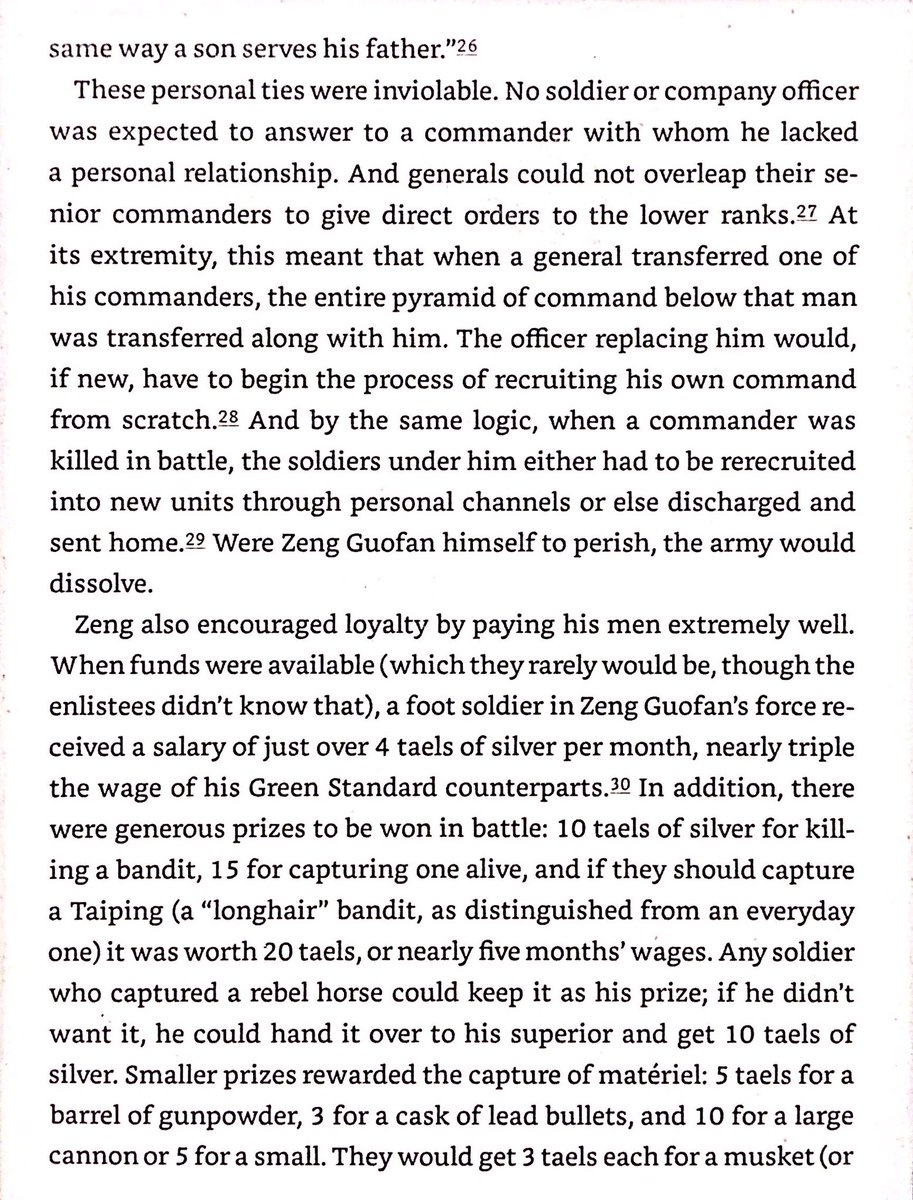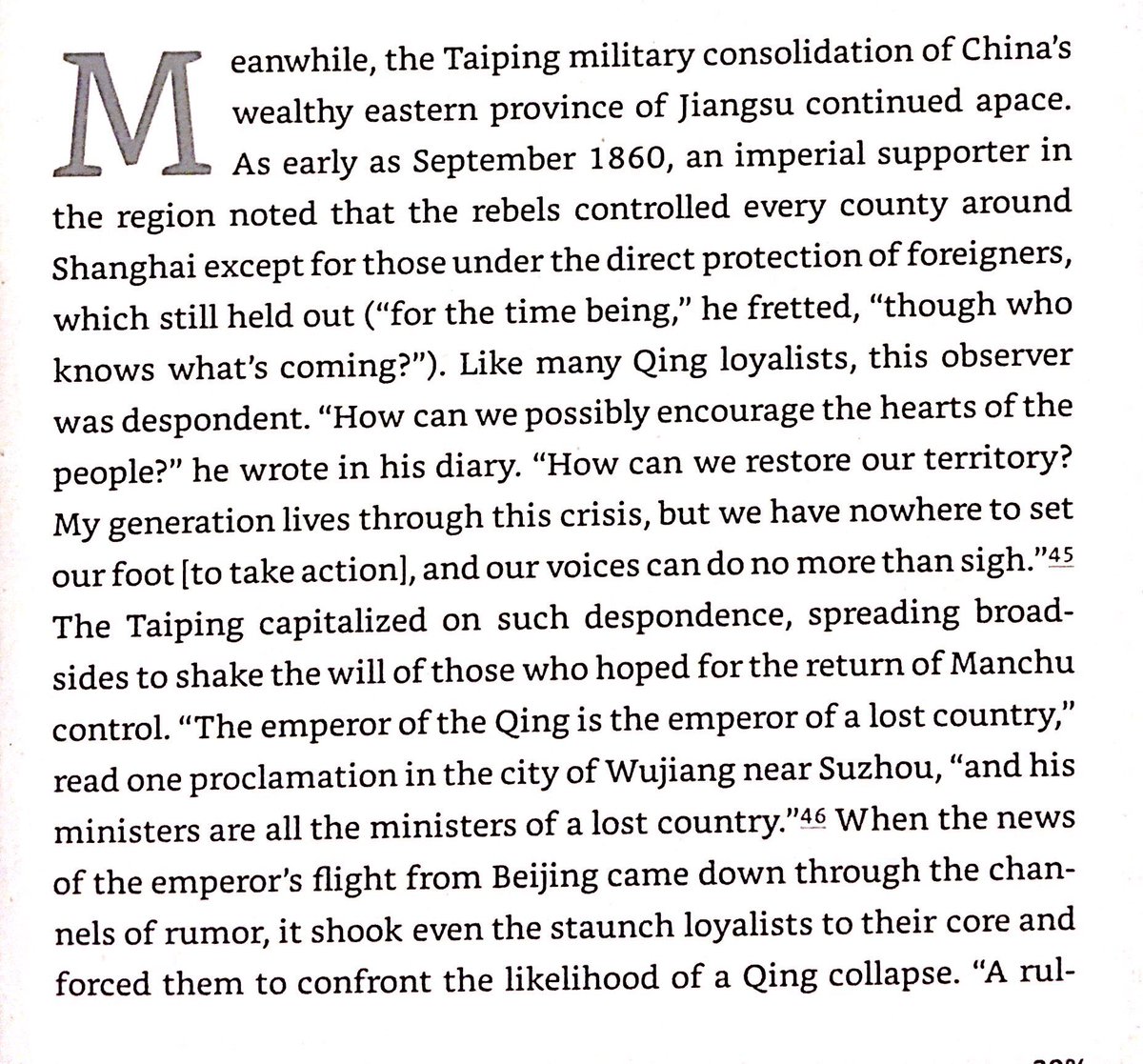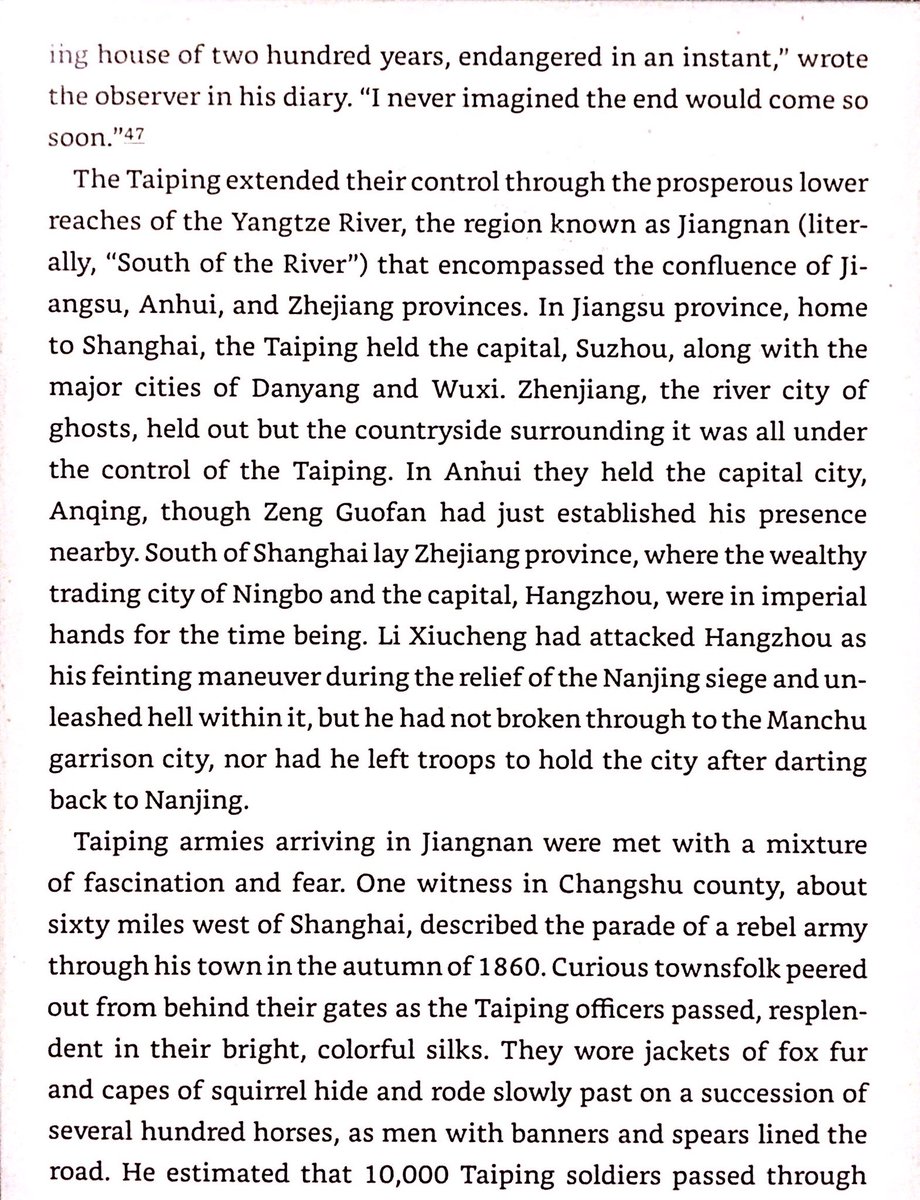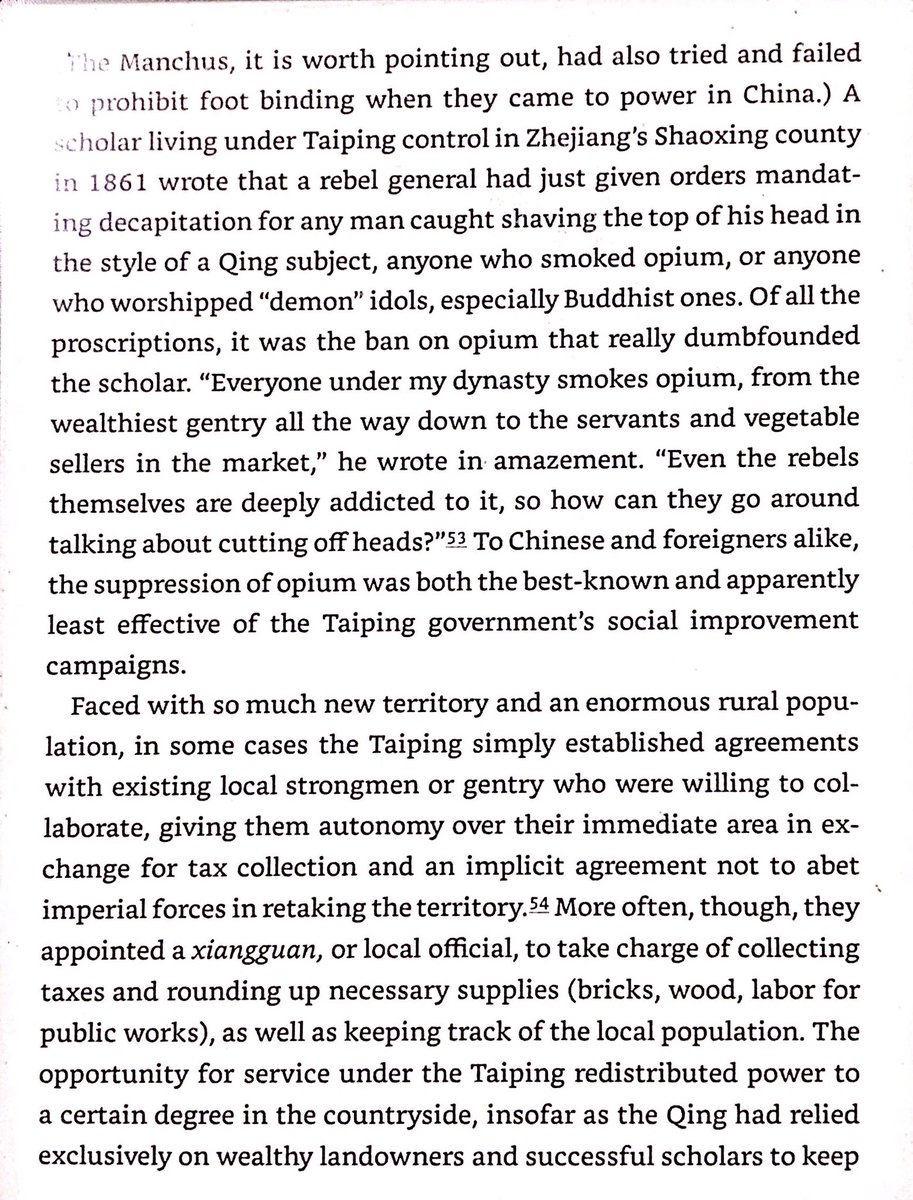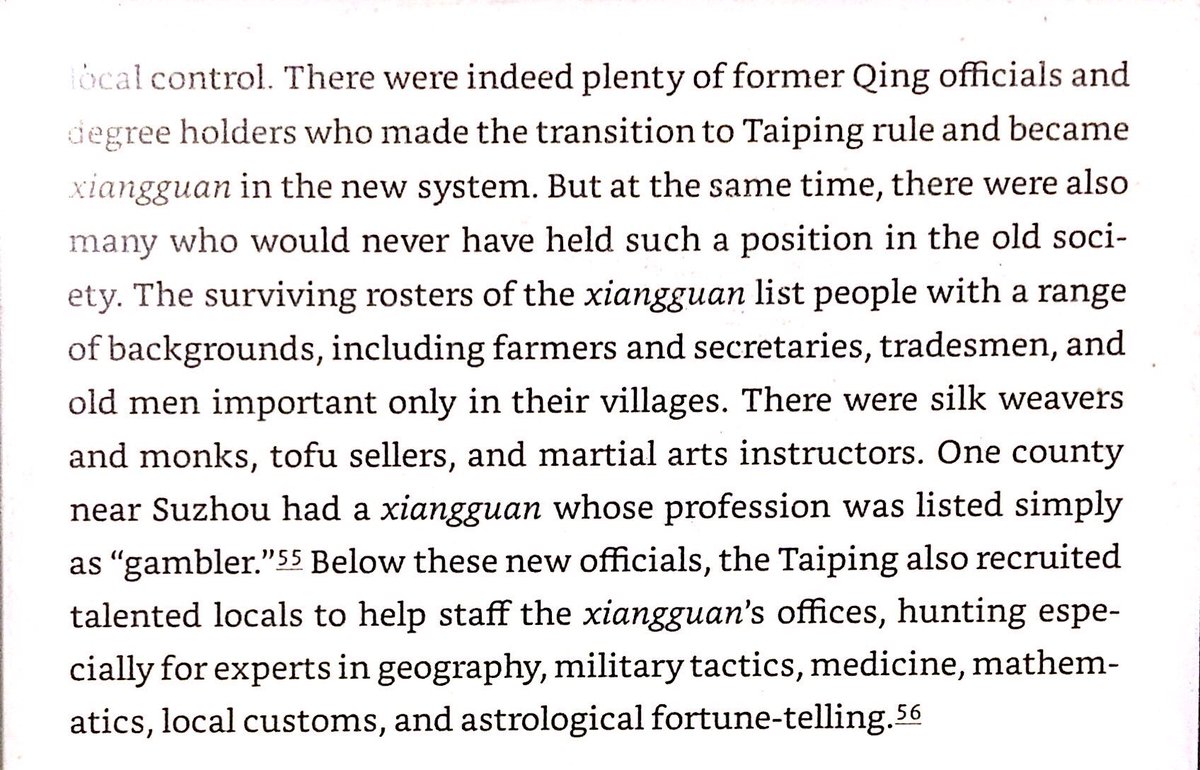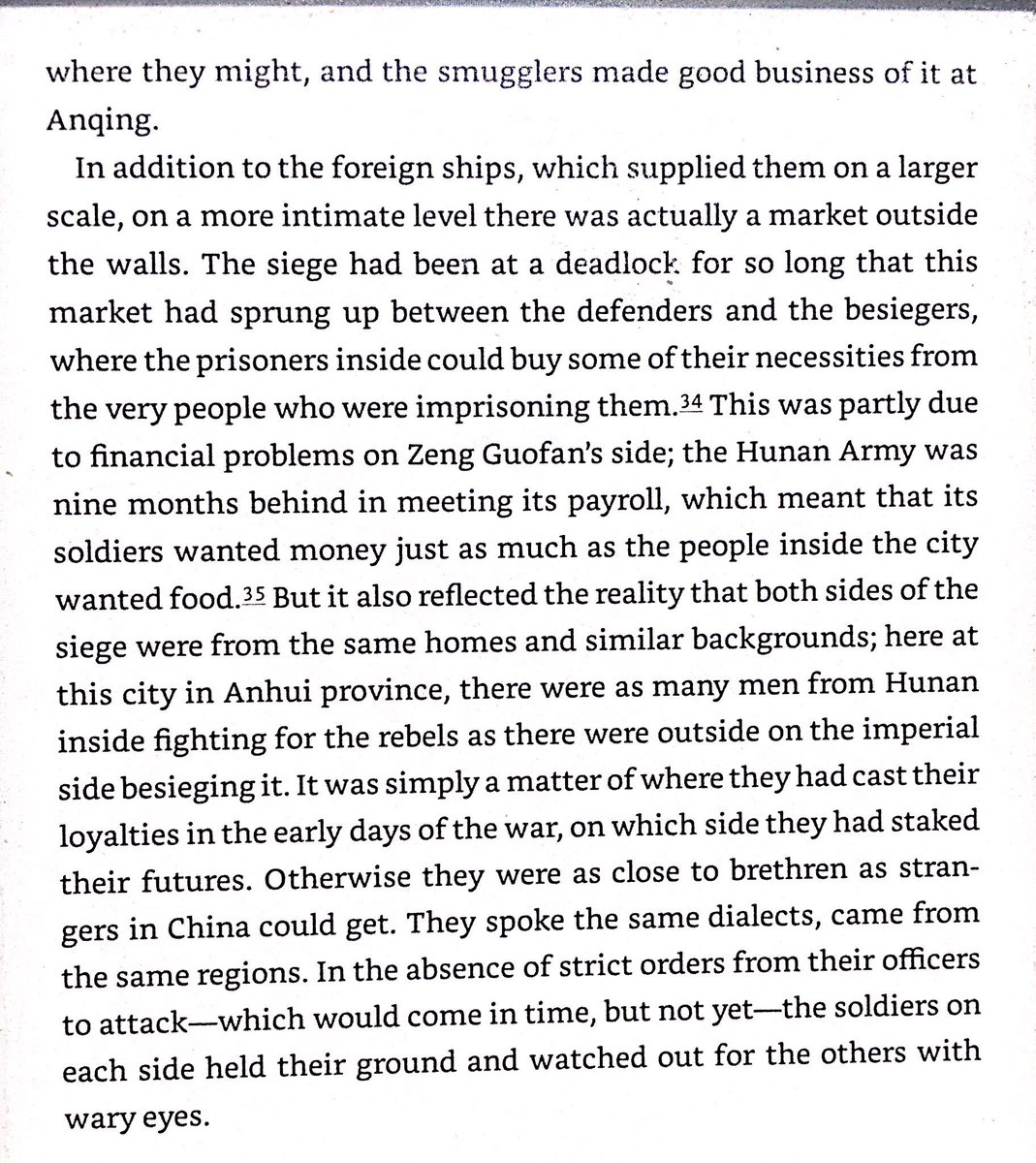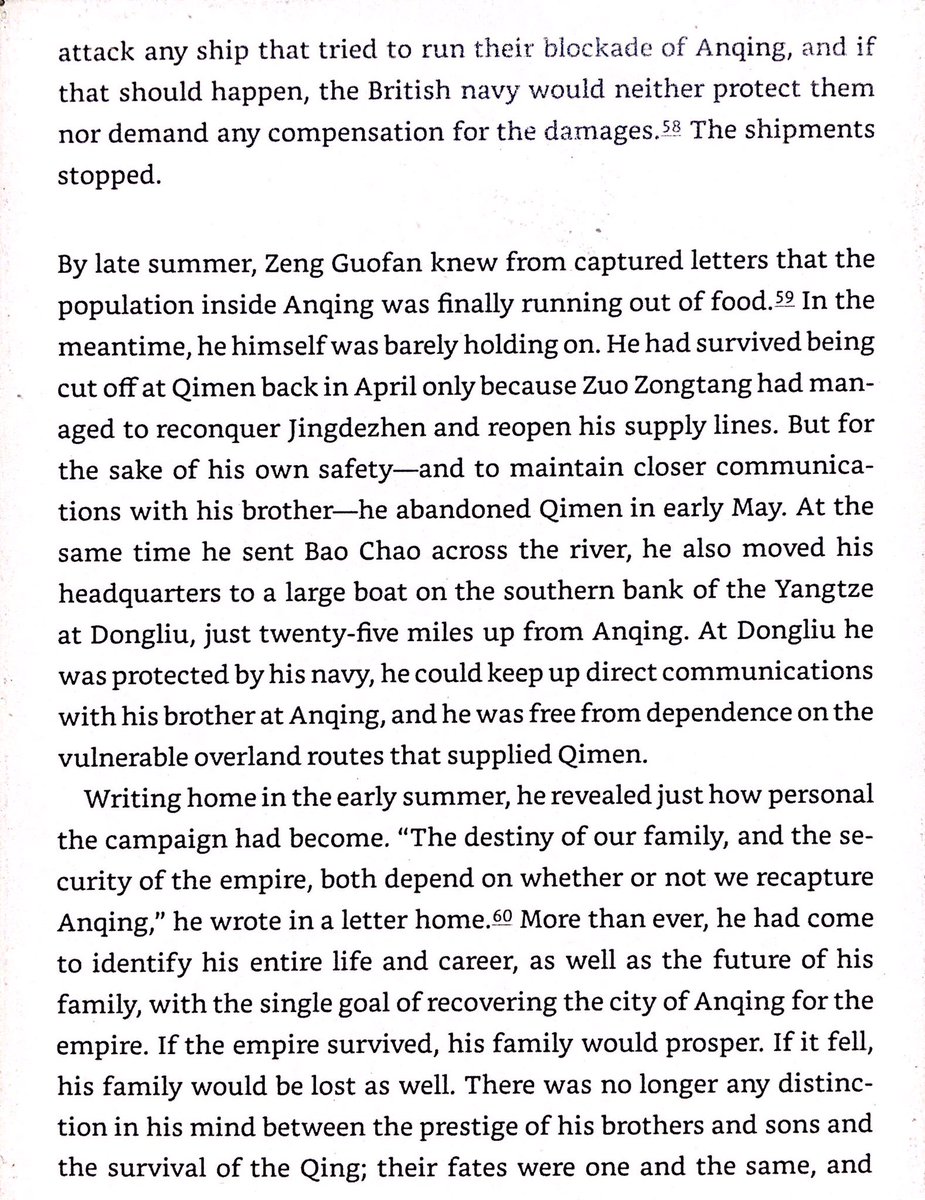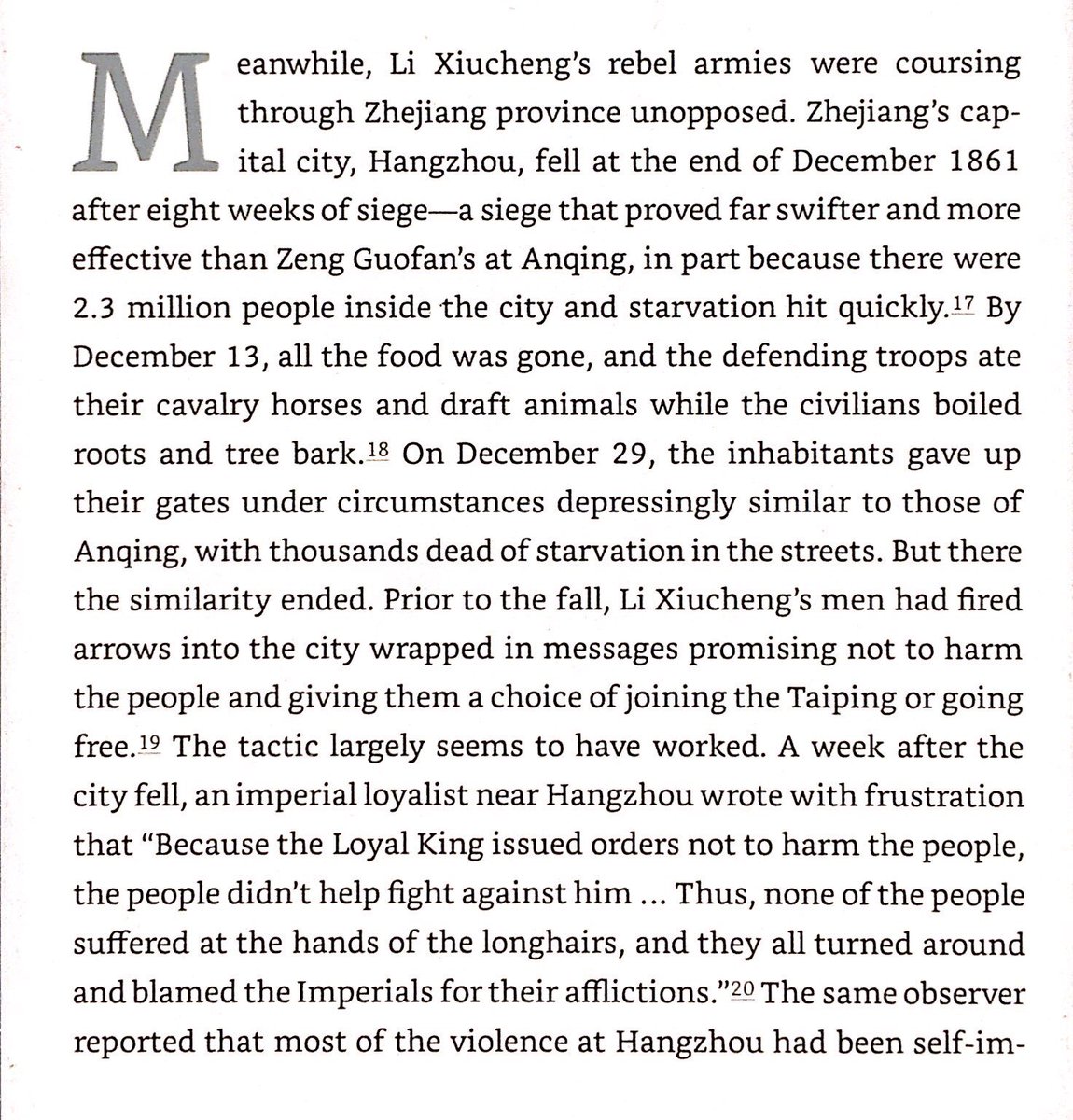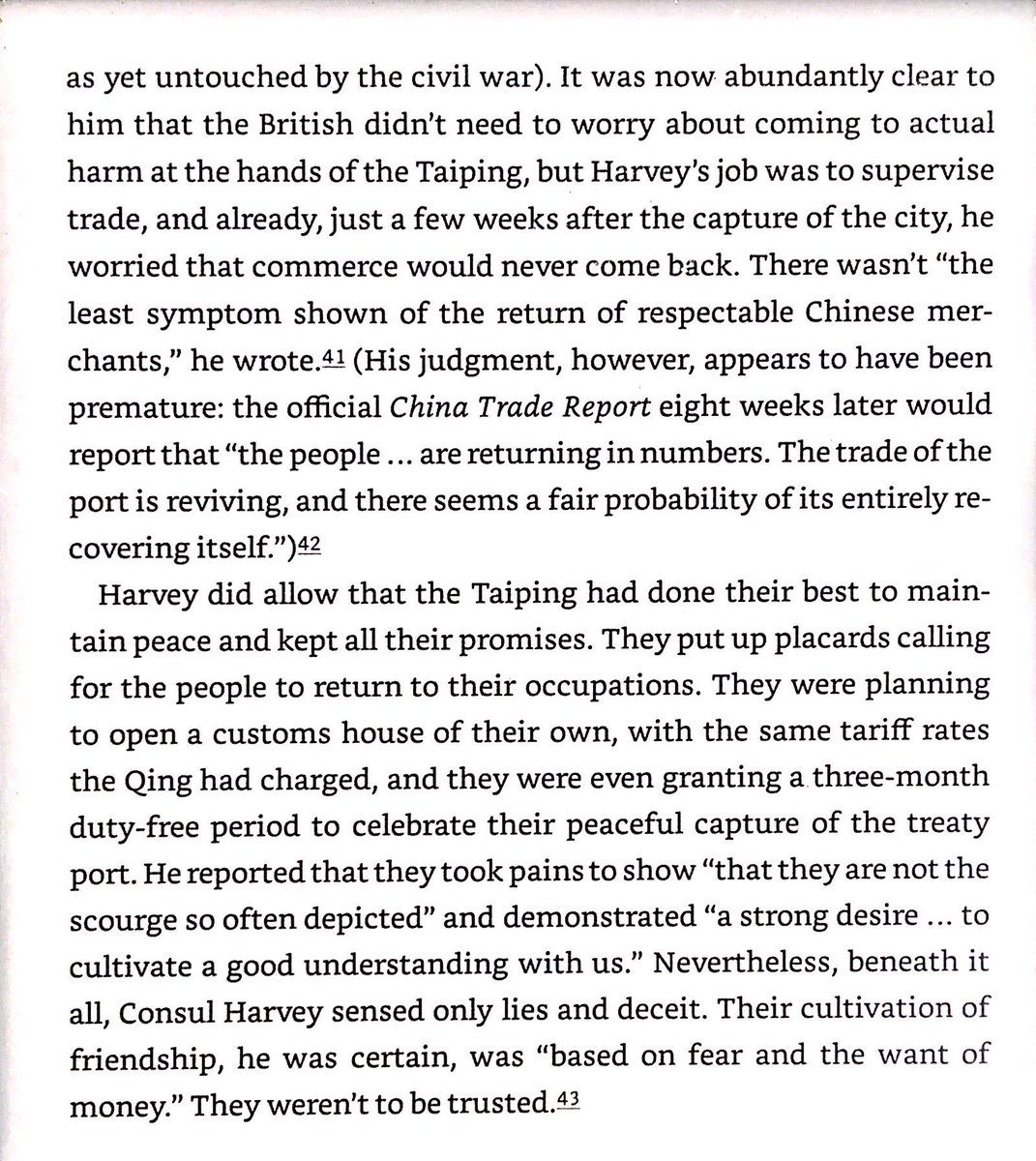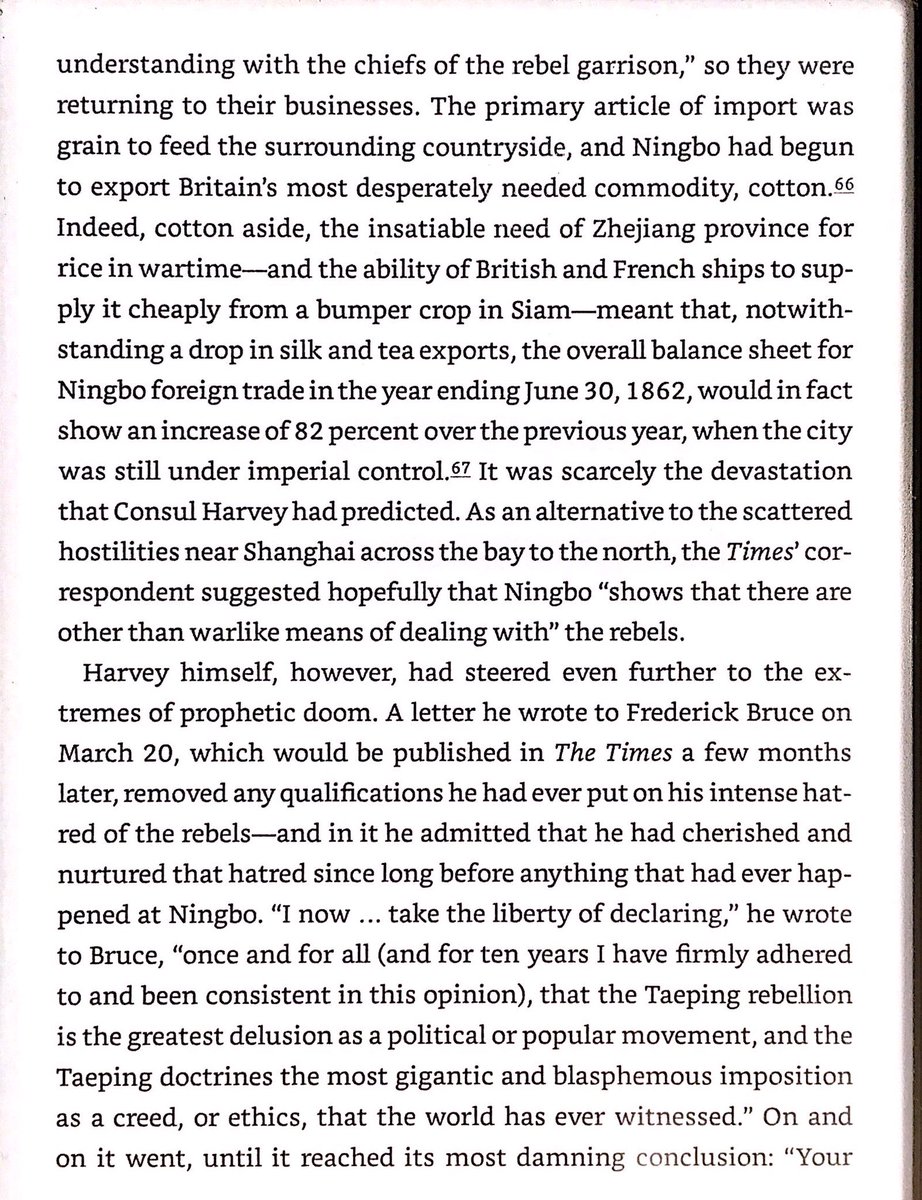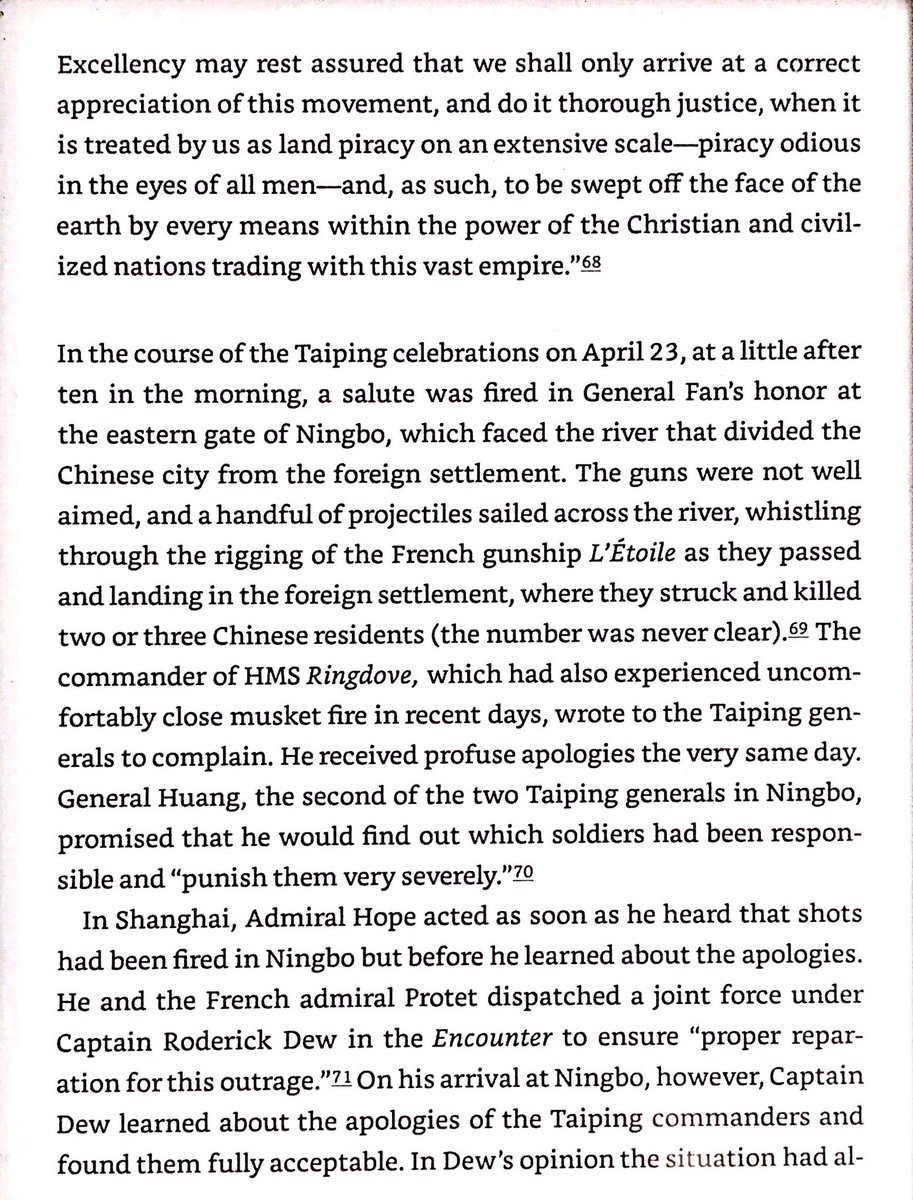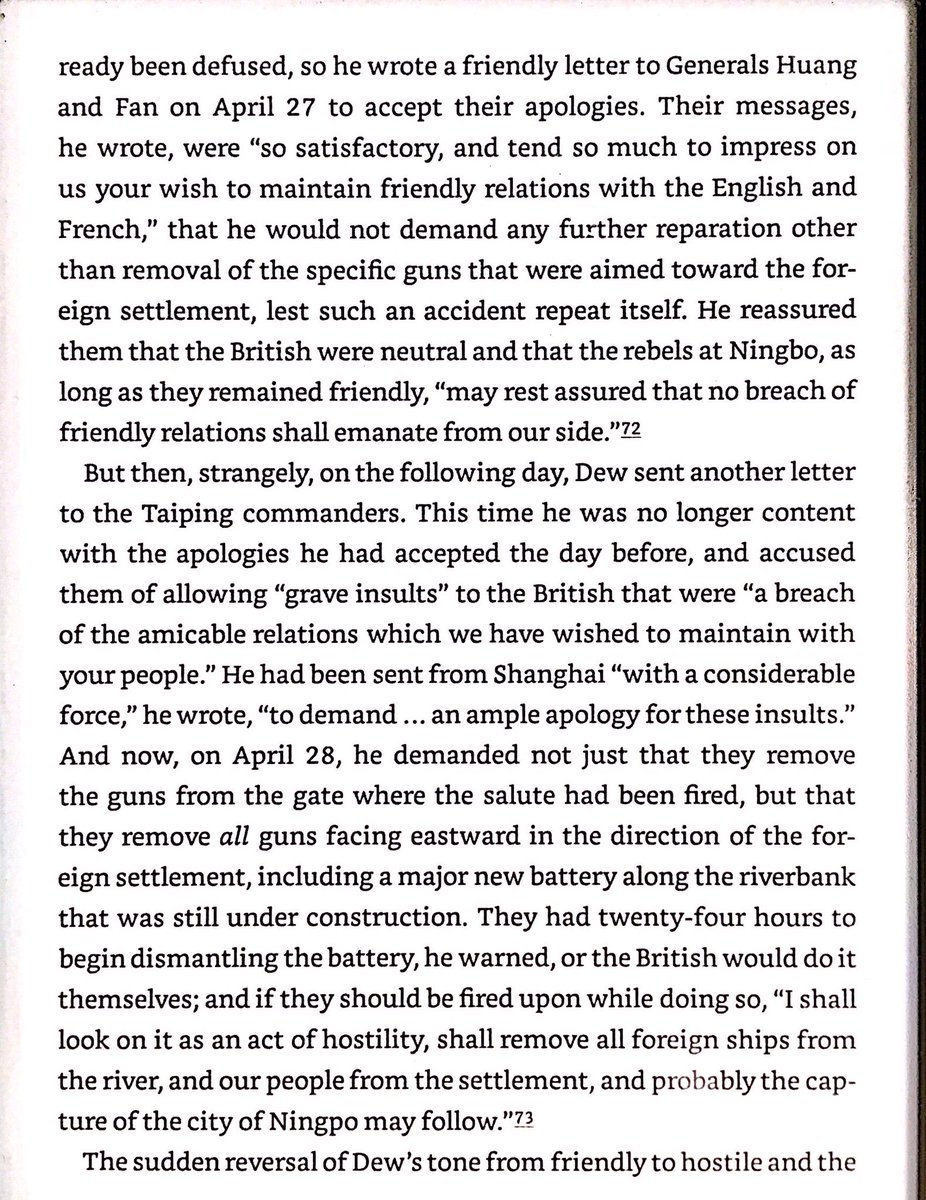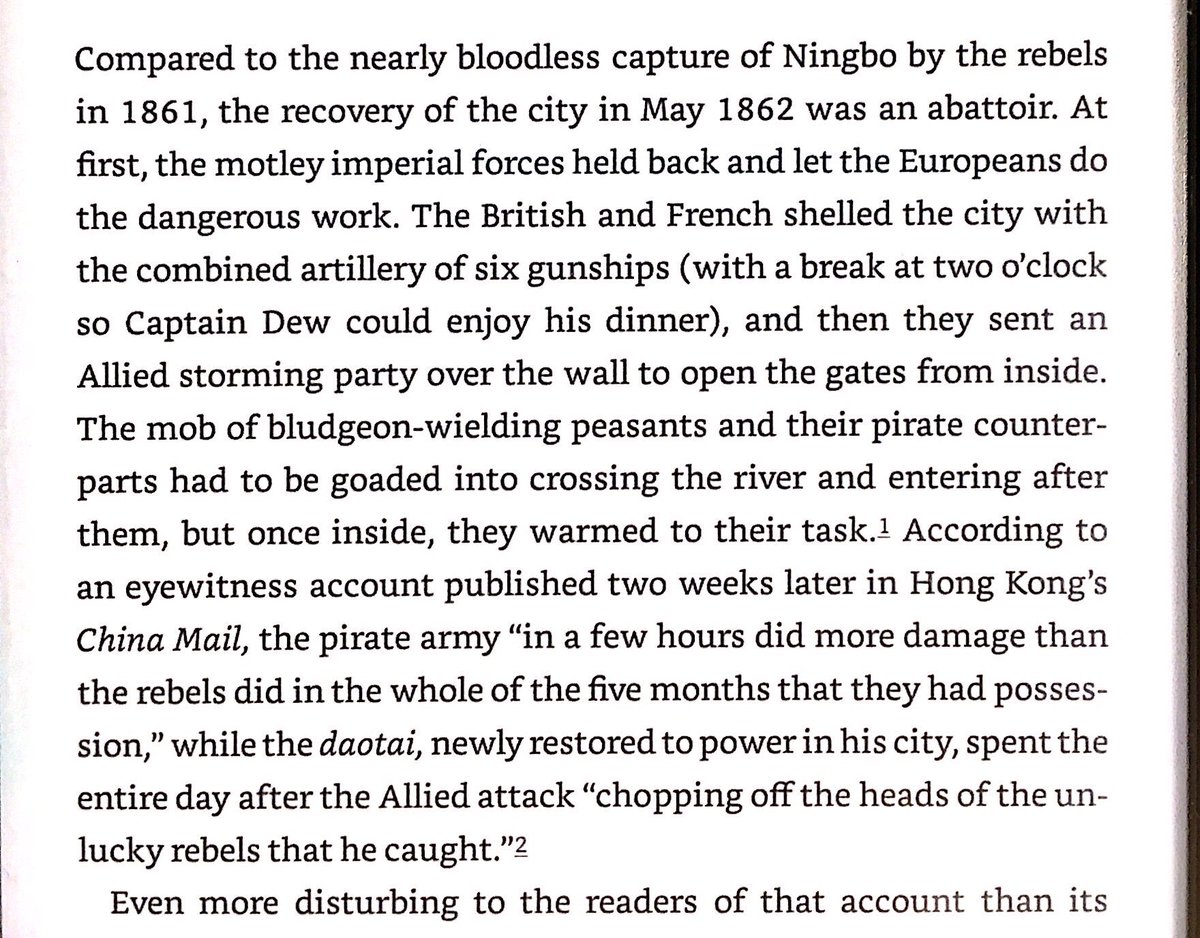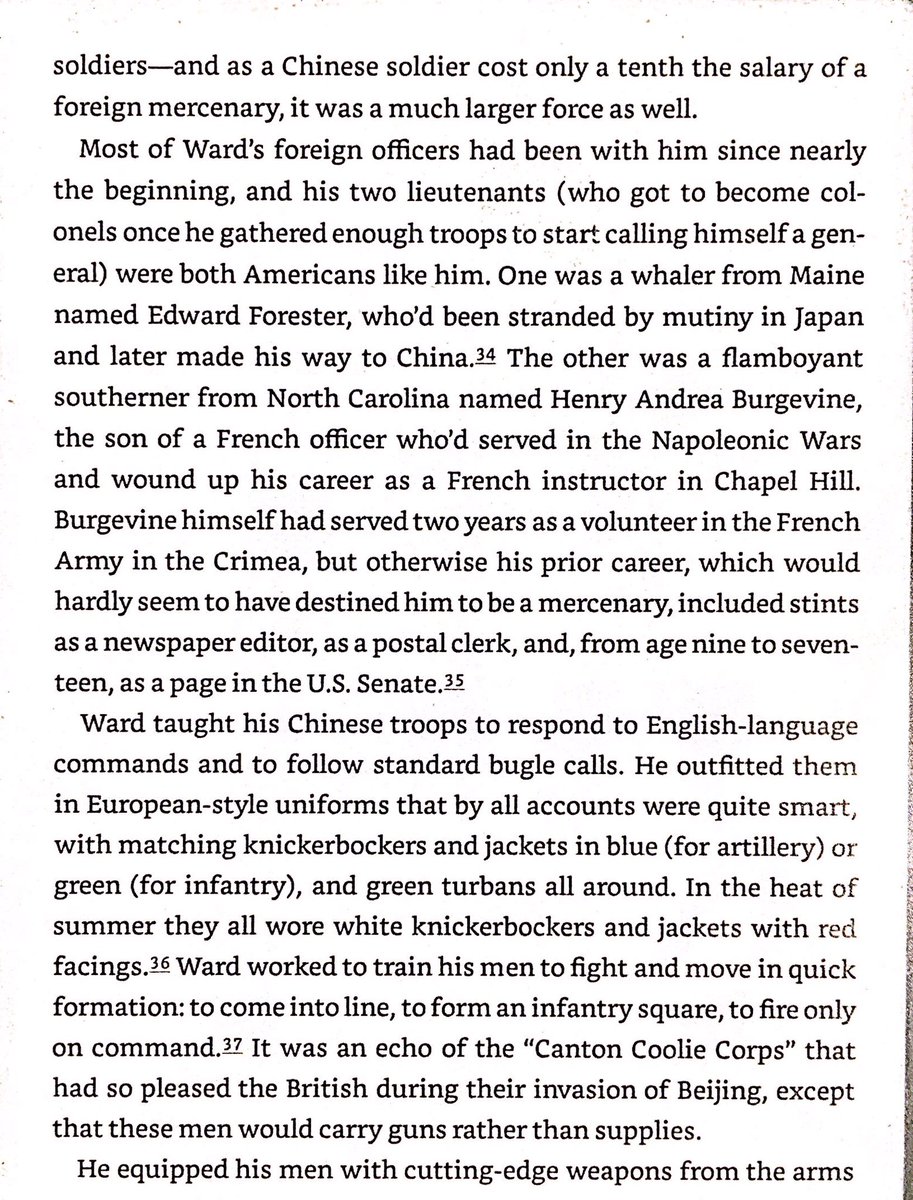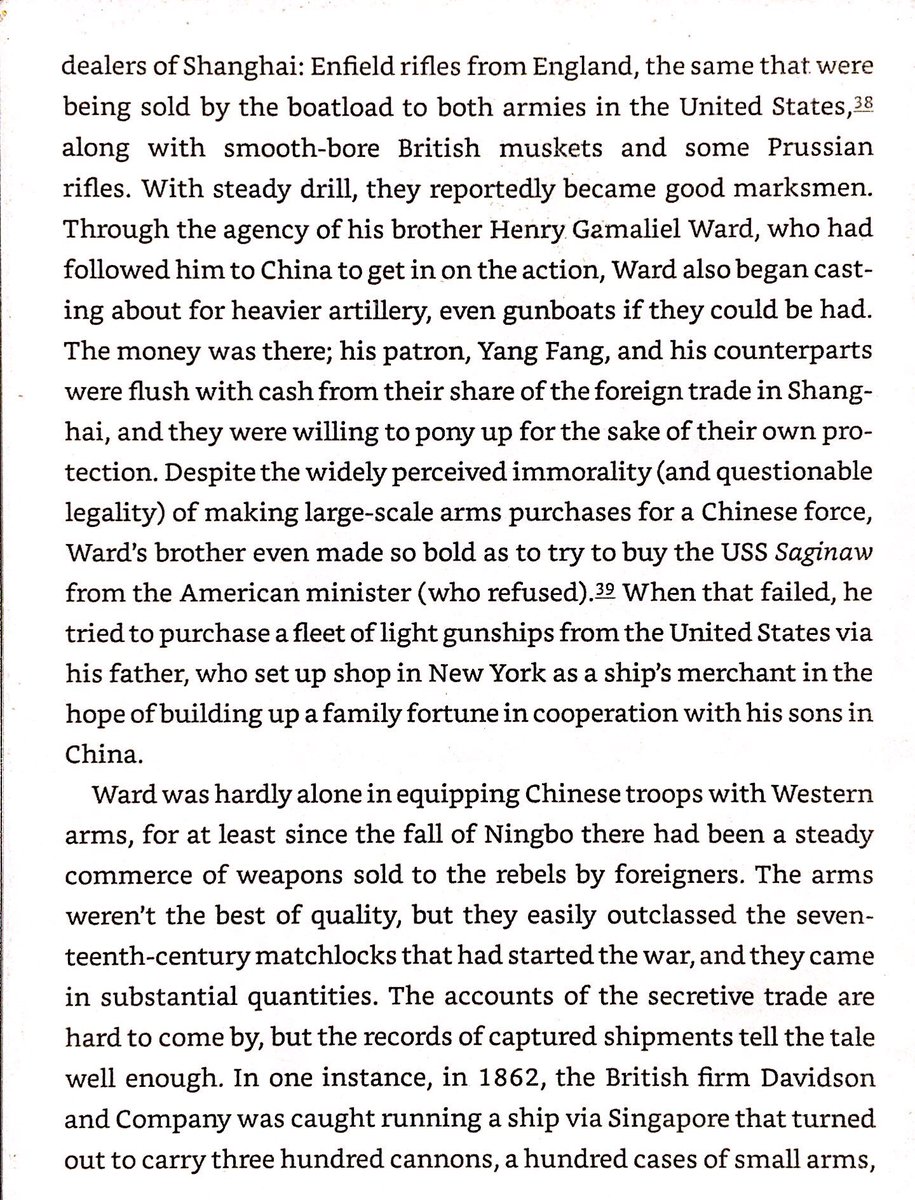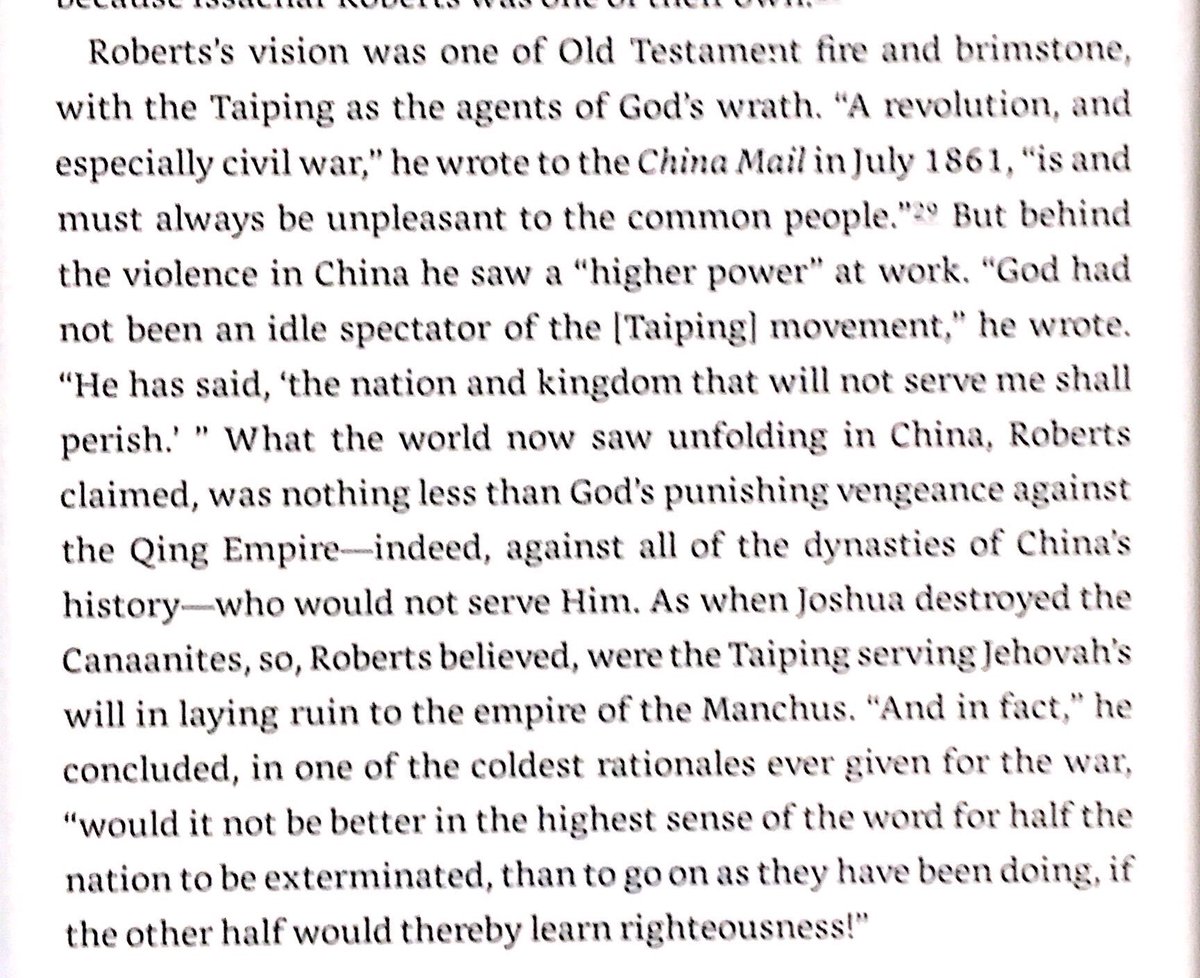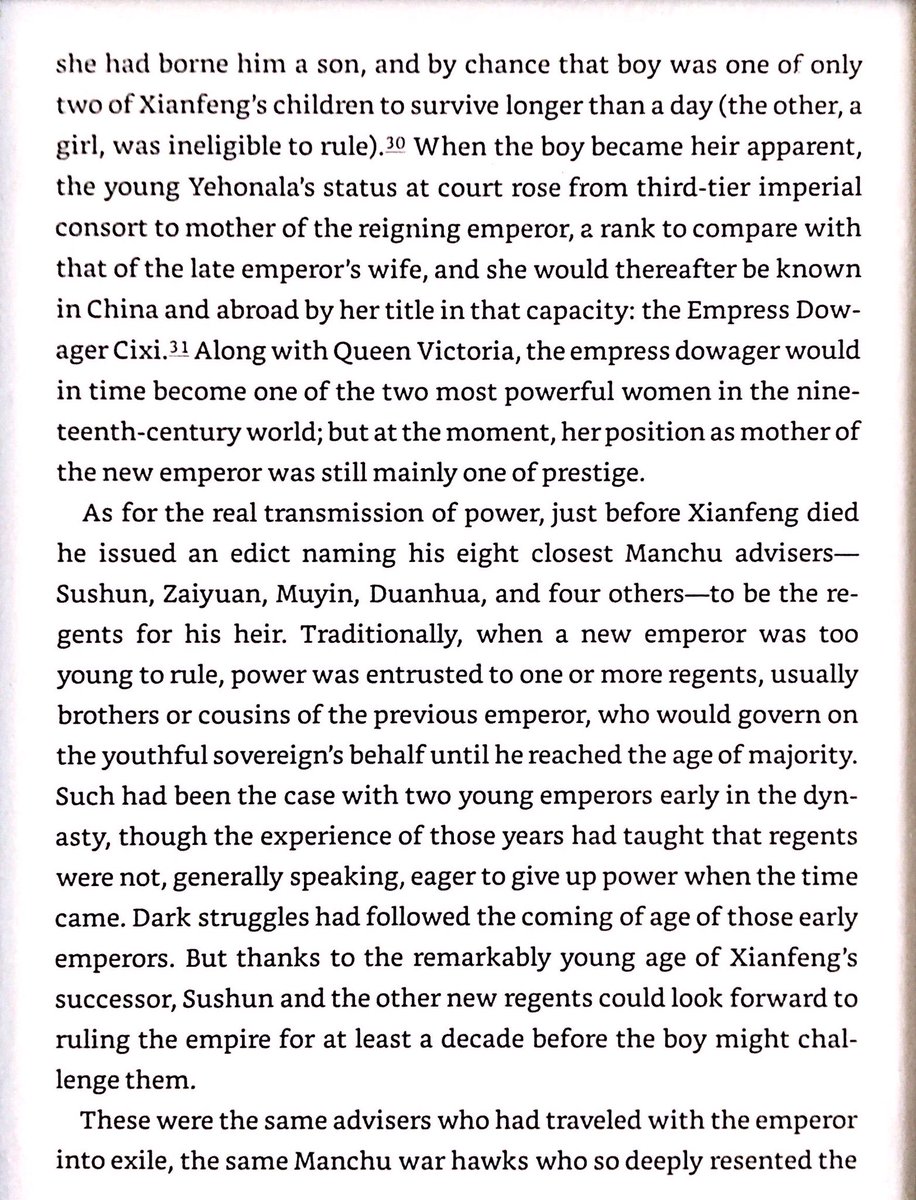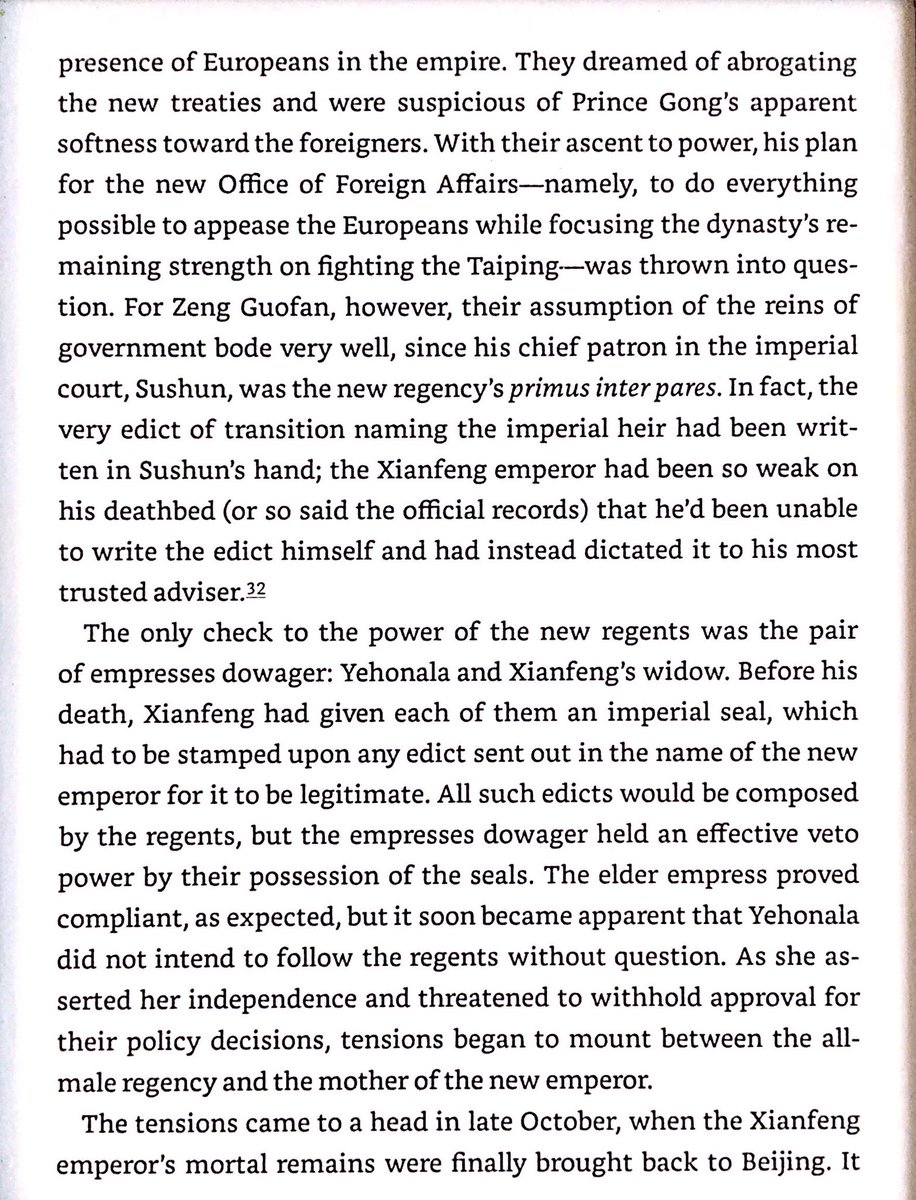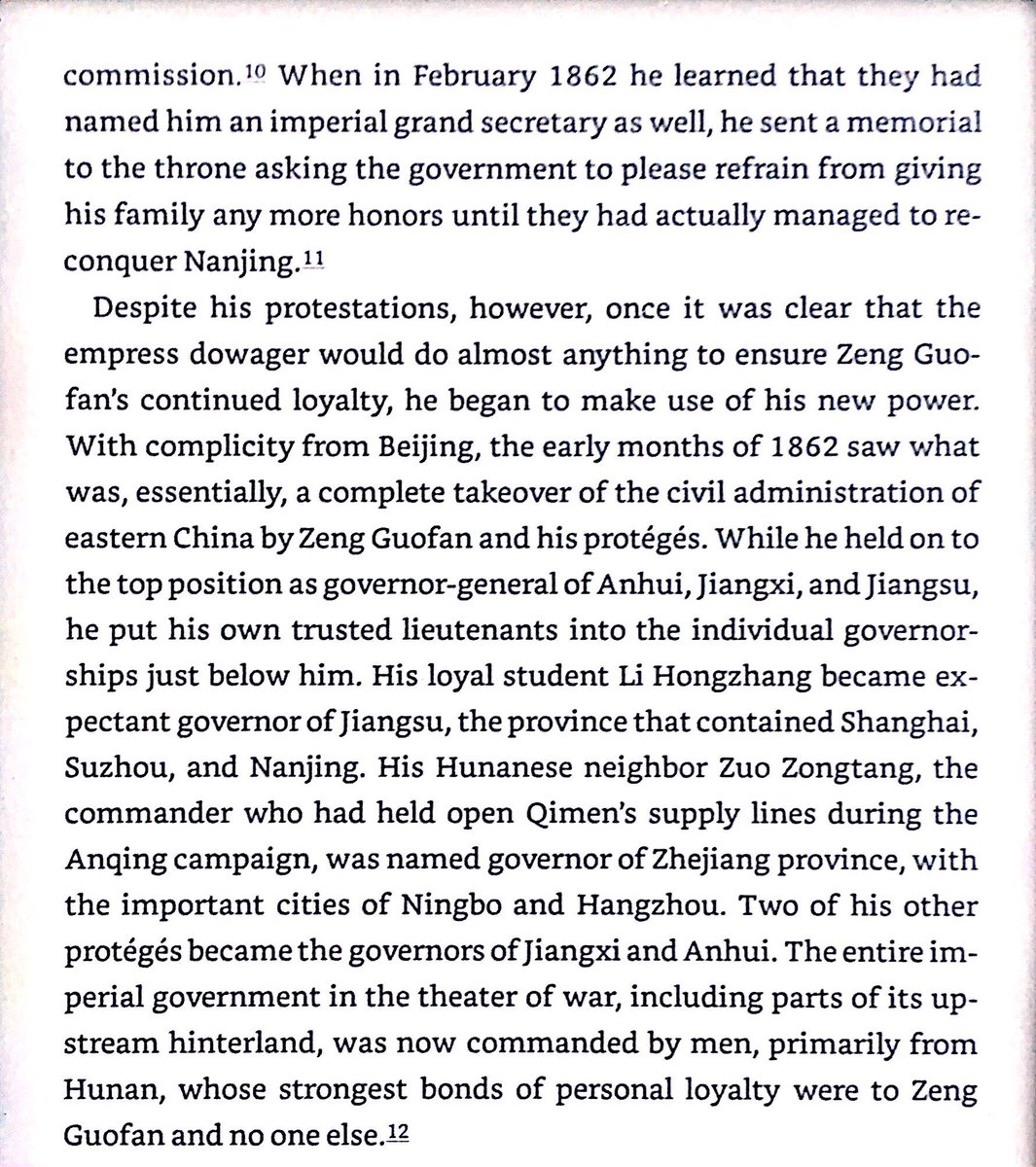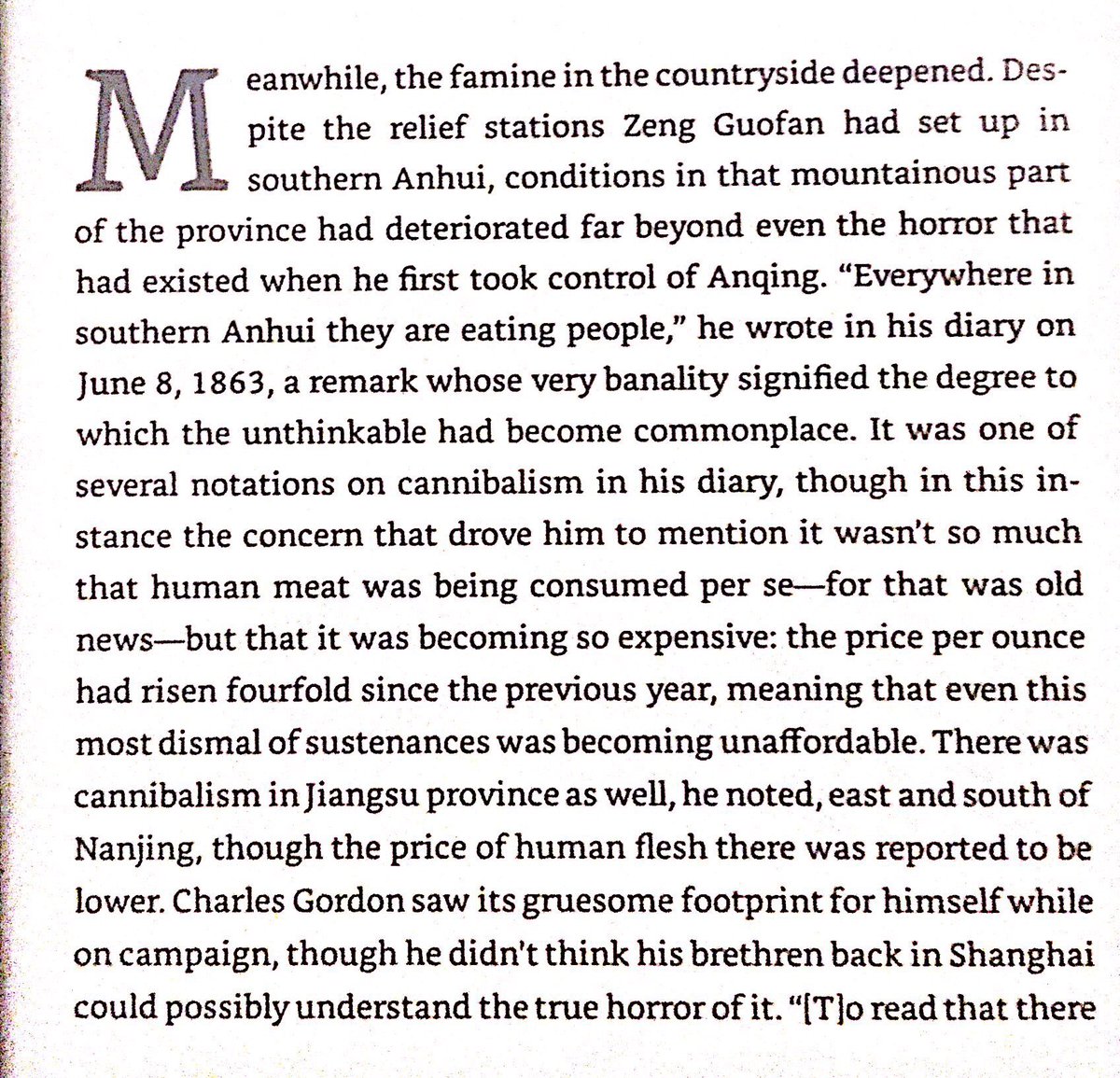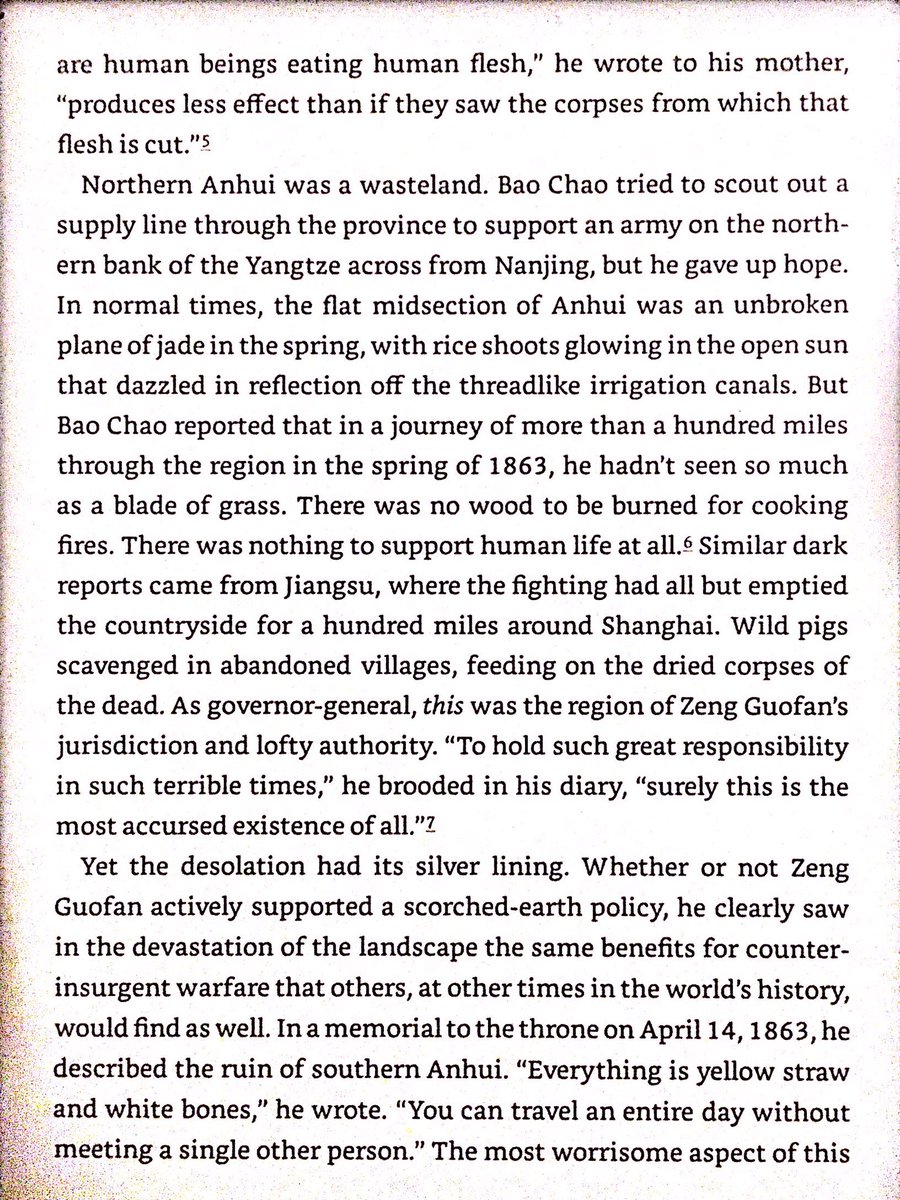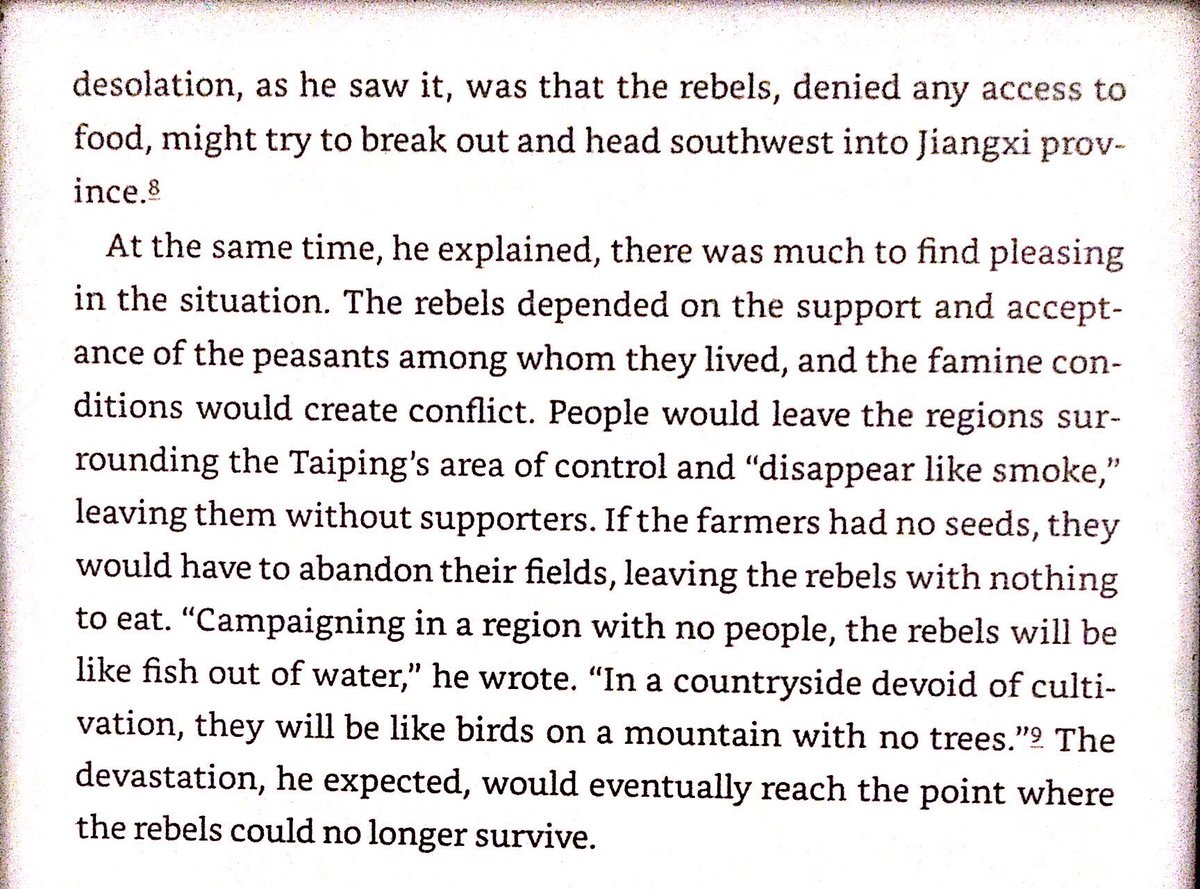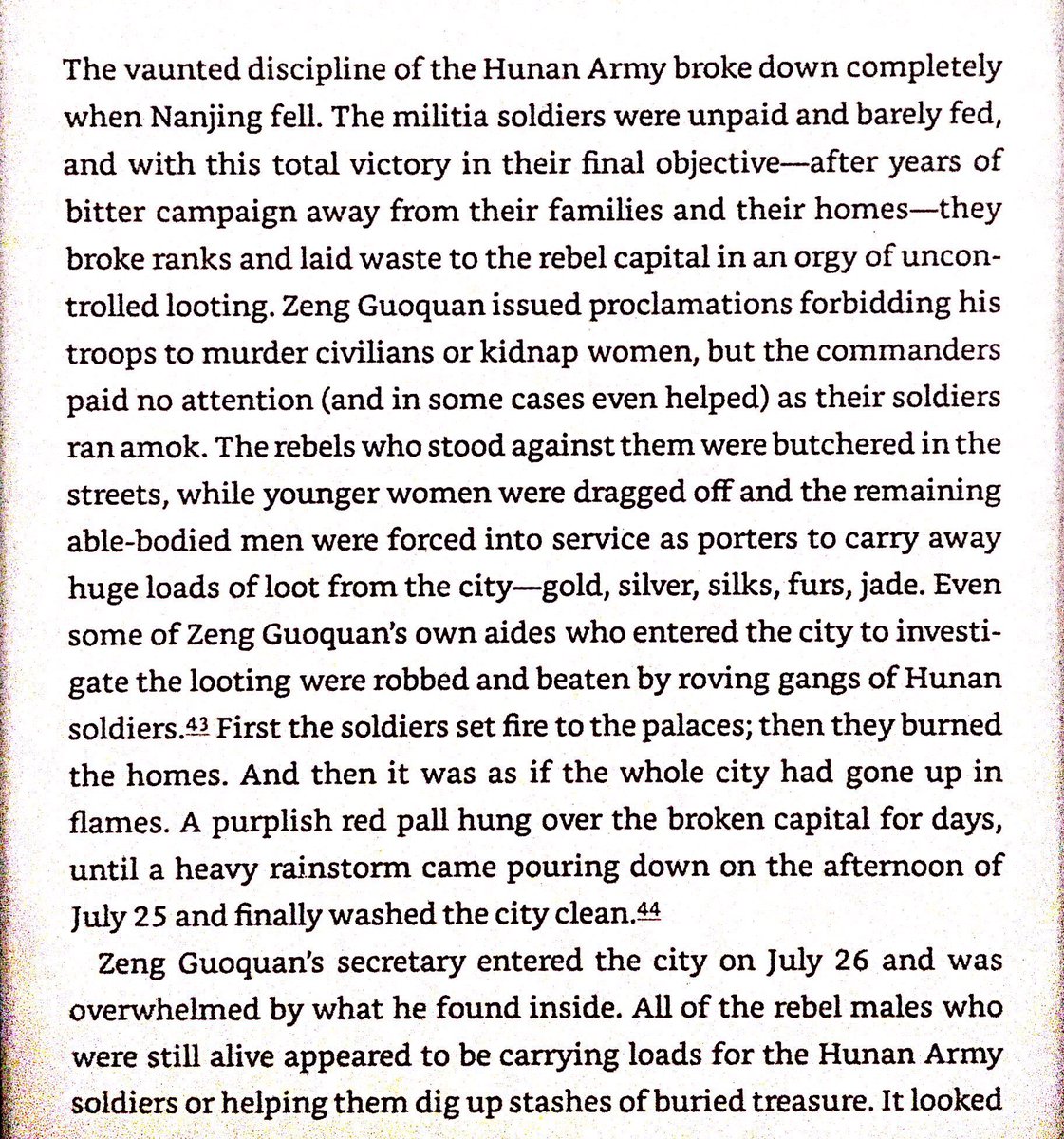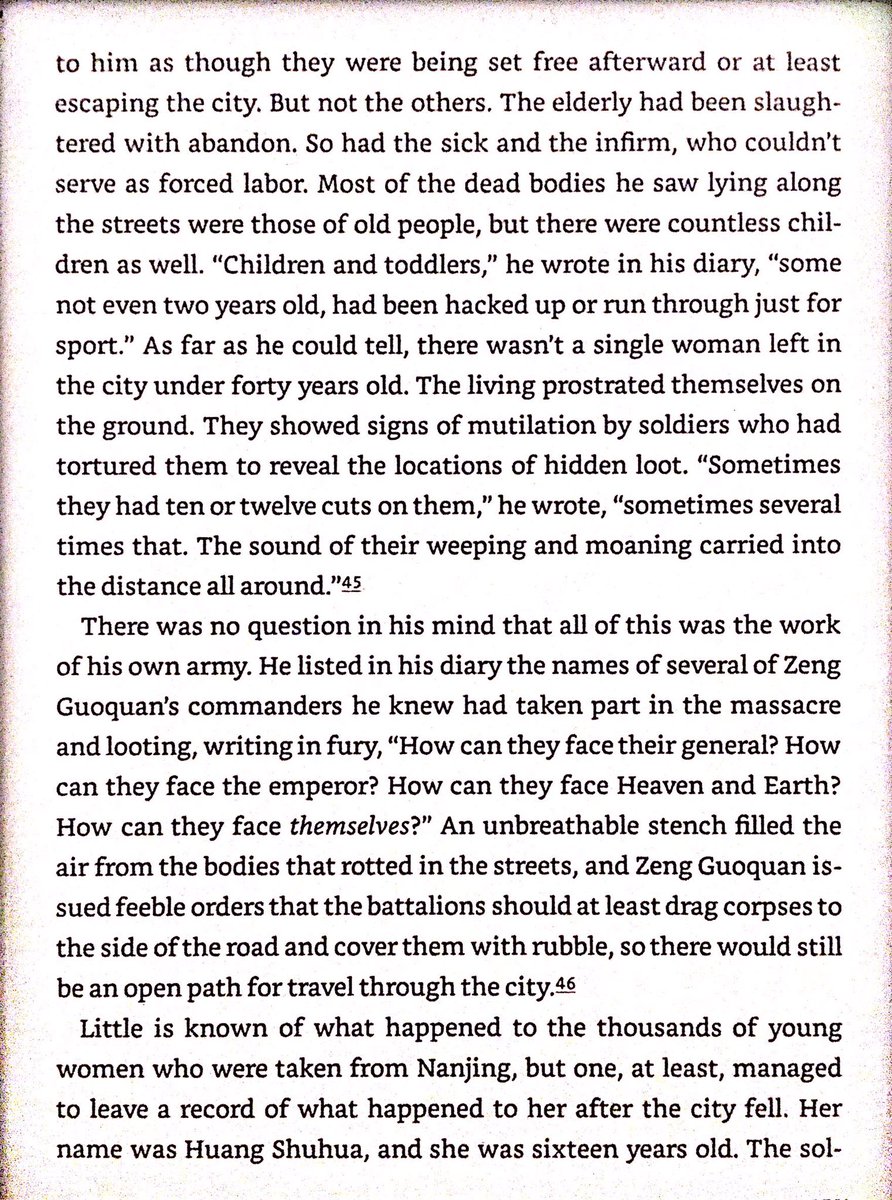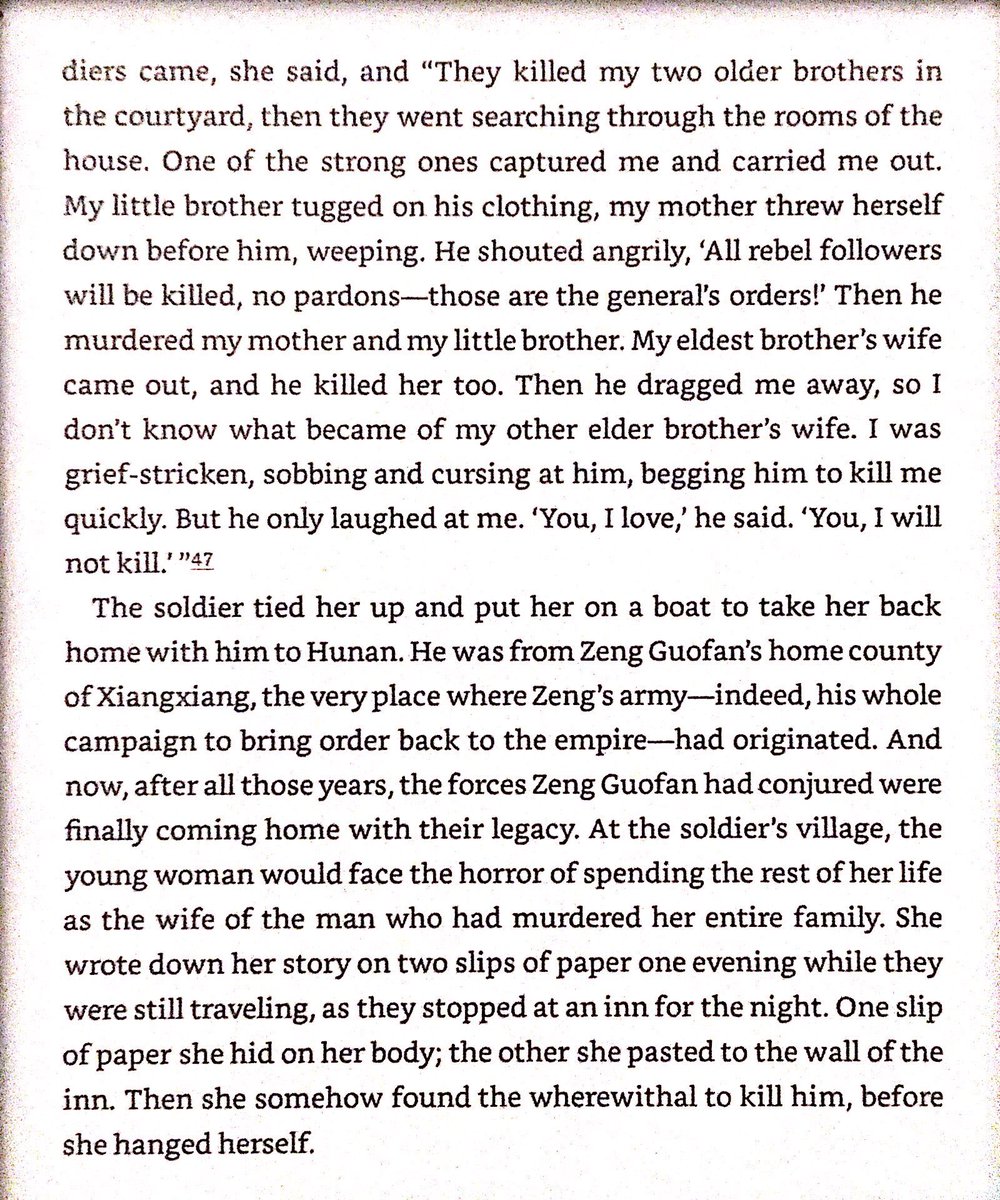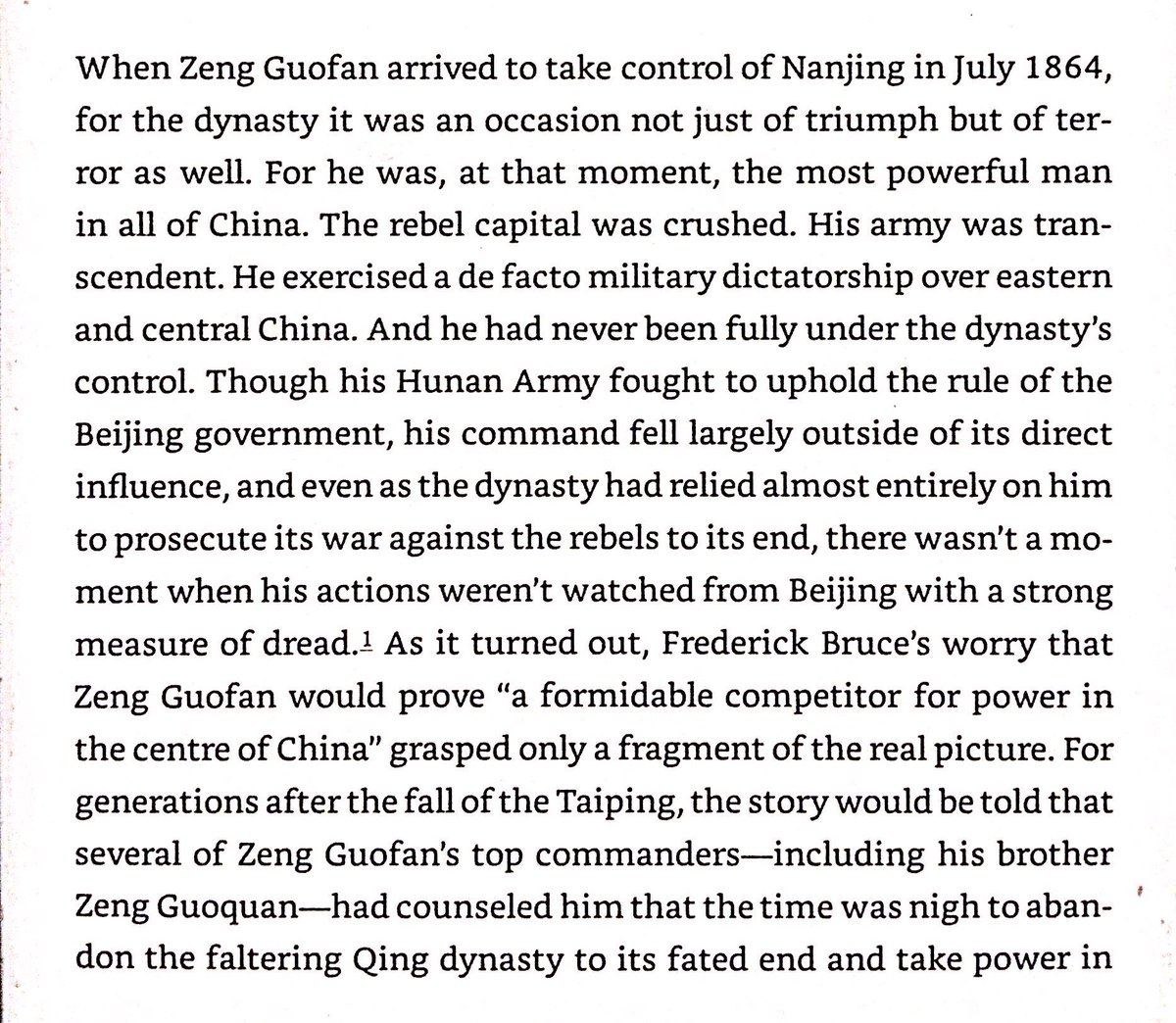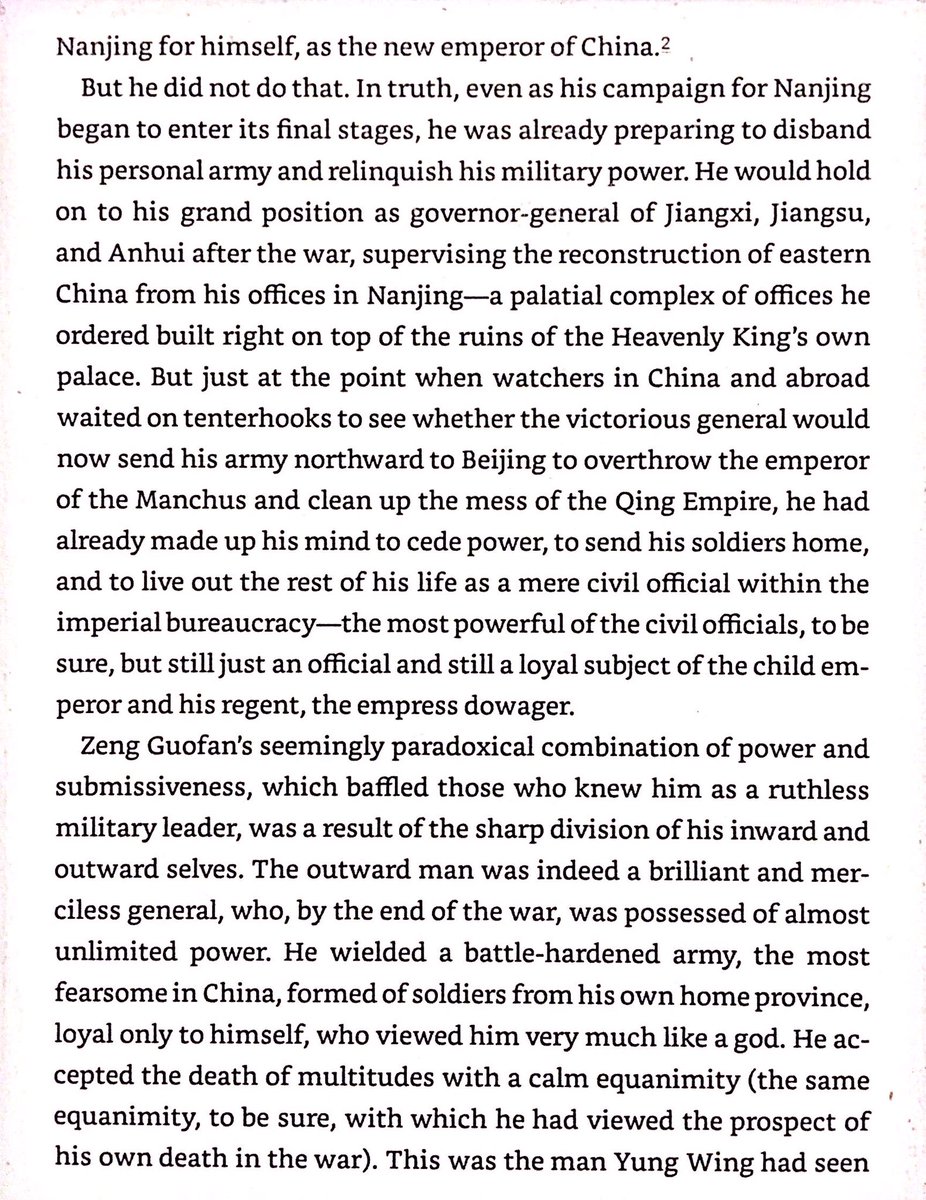Thread with excerpts from “Autumn in the Heavenly Kingdom: China, the West, and the Epic Story of the Taiping Civil War” by Stephen Platt
Hong Xiuquan was from a Hakka family. He was a clever & industrious man whose family worked hard for so he could become a well paid bureaucrat. He failed the civil service exam 3 times, then had a breakdown and saw visions. After this, he seemed a different, improved man.
6 years later he studied Christianity and claimed it meshed with his visions. He mixed this with iconoclasm & anti-Manchu agitation. He rallied the Hakka behind him while they were attacked by natives. Now with an army, he declared himself the new emperor.
Taiping diplomatic efforts to win Anglo-French support on shared Christian faith & anti-Qing animus.
The Taiping capitol of Nanjing was heavily fortified, resisting Manchu siege. The Confuscian & Daoist temples had been destroyed, and the local Manchus exterminated. Apocalyptic war propaganda covered the walls.
Taiping’s prime minister’s views on equal foreign relations, the relative strengths of various states & faiths, and his admiration of USA.
The prime minister had plans to industrialize & modernize China as a theocracy. Christian welfare organizations, steamships, railways, canals, paper money, newspapers, morality police and much else figured into his vision.
The Taiping vision of an ethnostate embracing the borders of the old Ming realm, leaving the assorted Manchu, Mongol, and Turkic tribes in control of their lands in the west and north.
From 1856-9, the Qing built 45 miles of trenches with over a hundred strongpoints around Nanjing during their siege.
Taiping had troops dressed in Qing uniforms overrun a number of Qing camps, then terrorized a city. The Qing pulled 25% of their troops back from the Nanjing siege to stop them, then Taiping attacked the siege camps and defeated the Qing armies.
Superior artillery gave the Europeans a decisive advantage. Even the famous Mongol horsemen could not overcome it.
Qing’s most valued troops were descendants of steppe horsemen, while most troops were corrupt, poorly trained and ill equipped Chinese. This was deliberate - the Emperor didn’t want an effective Chinese fighting force that could topple the dynasty.
The Qing desperately needed new armies, and granted loyal bureaucrats the authority to raise armies in their provinces. One, Zeng Guofan of Hunan, created an army with good pay, harsh discipline, and locally organized recruitment - all to prevent desertion & maintain discipline.
By fall 1860, the Taiping were winning the war. Shanghai only remained in Qing hands due to foreigners and their artillery.
Taiping moral legislation tried & failed to end opium use & foot binding. Their kingdom was administered at the local level by officials recruited from all classes.
Strategic importance of Anqing - natural fortress that controls that stretch of the Yangtze River. Qing troops besieged it. The Taiping weren’t too concerned, and planned a giant encirclement of Qing forces.
Taiping held Anqing resisted Qing siege easily with aid of foreign riverboat resupply. When British ended protection of the ships, naval resupply ended and the city starved.
Taiping capture of Hangzhou & Zhejiang province were much kinder than the brutal massacres that Qing troops committed at Anqing.
Taiping conquest of the treaty port of Ningbo proved Taiping would be generous to foreigners and a good trading partner.
Despite Ningbo trade almost doubling after Taiping takeover, the British naval commanders were looking for an excuse to attack it and give it back to Qing. They finally found one, shelled the city, and the Qing took it back.
The rise of Empress Dowager Cixi - the new ruler of the Qing. She purged many of the prior emperor’s advisors to secure her own power.
Cholera devastated China during the war - with 1/8th of the population of the area surrounding Shanghai dying in a few months.
Piracy had made the interior more important than the coast in the past, but growth of foreign trade and technology had made the coastal areas more valuable by mid 19th century
Zeng Guofan created a personal power base, supported by empress dowager Cixi and her advisors. This was part of a trend wherein authority increasingly vested in ethnic Chinese and local officials. This would culminate in the Warlord Era after Xinhai Revolution.
Qing central government wanted a diverse & multiethnic navy, while Zeng Guofan preferred a fleet manned entirely by his fellow Hunanese.
Towards the end of the war, lands were so devastated that people were resorting to cannibalism. Qing loyalists were delighted - no people meant no rebels.
The Fall of Nanjing & the end of the Taiping was a brutal affair. One local girl’s story survives. Her family was killed by a Qing soldier, who took her away as a bride. She wrote her story, killed her husband, then killed herself.
At the end of the war. Zeng Guofan was the most powerful man in China. His brother counseled him to topple the Qing and proclaim himself emperor. He remained loyal to the Qing dynasty and the Empress Dowager.
Ranges of the death toll from the war are from 20 million to 70 million. No census records are available, so the truth is difficult to determine.
I learned a tremendous amount from this book. My main issue was the gap in the narrative from when the Taiping were assorted militias to when they took Nanjing. Perhaps a lack of available sources?
@stephenrplatt I thoroughly enjoyed your book on the Opium War as well. Great work!

 Read on Twitter
Read on Twitter
